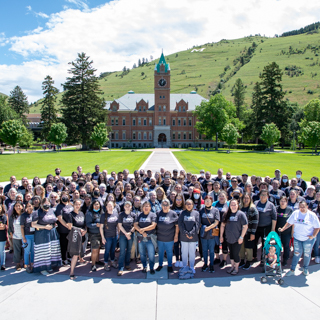People
Facilitators, Assistants, & Presenters

Meet our experts, stakeholders, and partners from academics and communities.
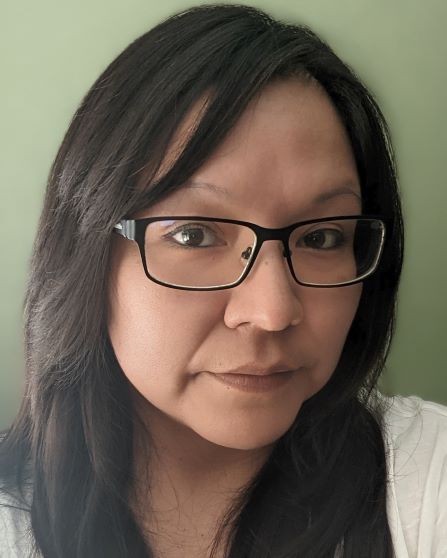
Adrienne Tsikewa, Zuni Pueblo, is currently a PhD candidate in Linguistics at the University of California, Santa Barbara. She is heavily involved with Natives4Linguistics, a collaborative project that promotes Indigenous needs and intellectual tools as ways of doing linguistic science. She currently serves as the convener for the newly formed Native4Linguistics Special Interest Group (under the Linguistic Society of America). She is also a current member of the CoLang Advisory Circle and nominated future co-convenor. She earned an MA in Native American Languages and Linguistics (NAMA) from the University of Arizona in 2013. During her time at Arizona, she served as a Graduate Assistant for the American Indian Language Development Institute (AILDI). She recently taught online with AILDI during the summers of 2020 and 2021. Her research interests include language documentation and description, language reclamation, language maintenance/revitalization, sociocultural, applied linguistics, bilingualism and code-switching.
Co-facilitator: Indigenizing the National Science Foundation
Workshop assistant: Intro to Linguistics 2
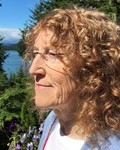
Alice Taff works to foster Alaskan language continuity by engaging community members to document language, re-establish situations for language use, and create materials in their languages. Her current research interest is finding links between ancestral Indigenous language use and health. Adopted into the Tʼaḵdeintáan clan, her Tlingit name is L Jáaḵkʼ. She is affiliated with the University of Alaska Southeast in Juneau, and the Alaska Native Language Center at the University of Alaska Fairbanks.. She has worked with Unangam Tunuu (Aleut, ale), Deg Xinag (Ingalik, ing), and Tlingit (tli) language communities to design, fund, and implement language documentation and revitalization efforts.
Co-facilitator: Documenting Conversation & Using Our Languages Improves Our Health
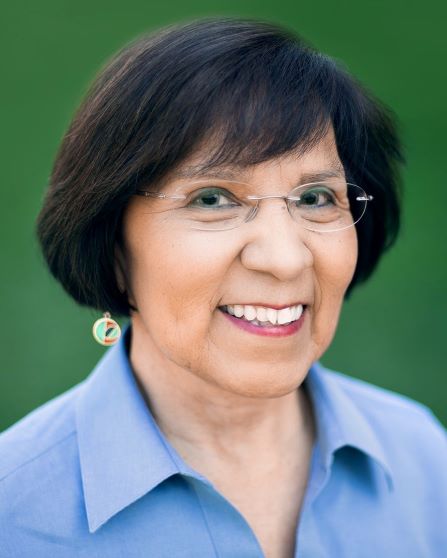
Alyce Sadongei (Kiowa/Tohono O'odham) has a career history of working with Native American arts and culture. Prior to joining the AILDI staff, she worked at the Arizona State Museum (ASM) also at the University of Arizona. While at ASM she served as principal investigator on numerous grants, the most primary being an eight year project that focused on tribal libraries, archives and museums and was implemented in partnership with the Arizona State Library. This project directly influenced the formation of a national association of tribal libraries, archives and museums. Additionally, she was the co-project director of several grants related to repatriation, consultation and research regarding the use of pesticides on museum objects subject to repatriation. Previous to her work at ASM she worked at the National Museum of the American Indian, Smithsonian Institution where she developed the internship program and other areas of outreach.
External member, CoLang 2022 Local Organizing Committee
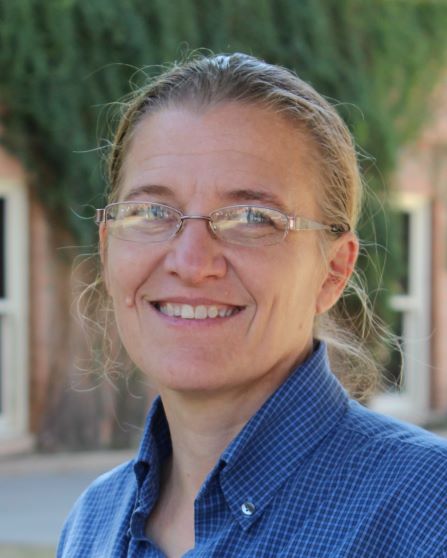
Amy Fountain earned her PhD in Anthropology and Linguistics from the University of Arizona in 1998, and has been teaching for the Department of Linguistics there, on the unceded lands of the Tohono O’odham and Pascua Yaqui Nations, since 2004. She is an academic linguist who is also interested in community based language projects, and who has had the good fortune to work with the Coeur d’Alene Language Programs office on various language technology projects. Amy grew up in Eastern Washington state in a white, monolingual English speaking family, on the unceded territory of the Yakama and the ščəl̕ámxəxʷ (Chelan), np̓əšqʷáw̓səxʷ (Wenatchi), who are currently part of the Confederated Tribes of the Colville Reservation.
Co-facilitator: Ethnobotany & Video Editing Basics
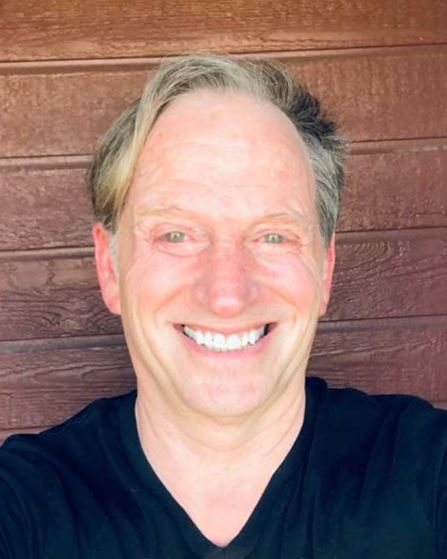
Ari Sherris is an Associate Professor of Bilingual Education at Texas A&M University-Kingsville. During the 2015-16 academic year, he was a J. William Fulbright Scholar at the University of Education, Winneba, Ghana. During his Fulbright, Ari lived among the Safaliba and documented their Safaliba language activism (Sherris, 2017, among many other papers). During June 2019, Ari was a distinguished guest researcher at the University of South Africa. He holds a PhD in Second Language Development, an MA in Applied Linguistics, and a BA in the Humanities. He is certified as an EFL and ESL teacher as well as a School Principal. His Indigenous language documentation includes conceptual metaphors in Salish Ql'ispe (Sherris, Pete, Thompson, & Haynes, 2013) and Safaliba (Sherris, Schaefer, & Kosiaku, 2021). He also explores applications of task-based language teaching in the pedagogy of revitalization (Reistenberg & Sherris, 2018, in press). His practitioner papers analyze integrated content and language instruction (Sherris, 2008), academic English instruction for graduate students (Sherris, 2017), and asset-based coaching (Sherris, 2010) for and by language teachers (e.g., peer coaching, critical friending in educational contexts). Ari has planned and facilitated language and literacy workshops and lectures, as well as curriculum development, in Ghana, Israel/Palestine, Italy, Saudi Arabia, South Africa, Sweden, Thailand, and the USA. See more about Ari's research.
Presenter: Experiential TBLT Session (90 minute session)
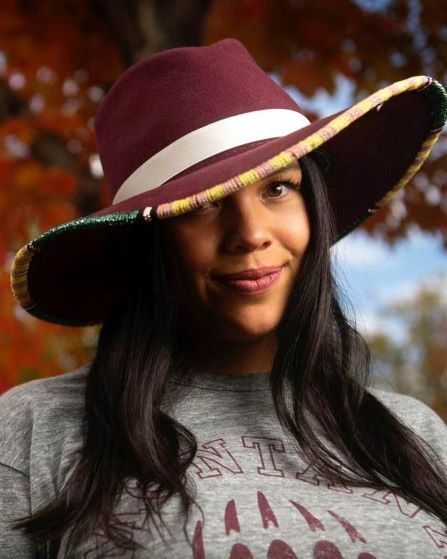
Aspen Decker is a proud member of the Confederated Salish and Kootenai Tribes (T̓at̓ayáqn Séliš). She is the Native Community and Museum Education Coordinator for Montana Museum of Art and Culture. Currently she is an MA student in linguistics at the University of Montana. She earned a BA in tribal historic preservation from Salish Kootenai College. She is one of the last of 17 fluent Salish speakers left today, and she speaks only Salish to her four children and is raising them as first language speakers of Salish. Aspen was recently awarded a grant from the Endangered Language Fund (ELF) for her project “kʷƛ̓ep Qe Sox̣ʷèp (Revive Our Roots) language project for creating a seasonal curriculum, that teaches Indigenous knowledge and Séliš epistemology together with Séliš language.
Workshop Assistant: First Language (L1) Acquisition of Indigenous Languages for Revitalization
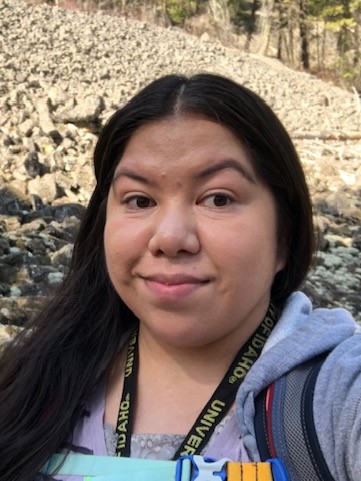
Audra Vincent is an enrolled member of the schitsu’umsh (Coeur d’Alene Tribe). Her mom, Patricia Vincent, was a member of the Muckleshoot tribe. Her dad, Richard Vincent, was a member of the Coeur d’Alene Tribe. Her maternal grandmother, Betty Jean Goudy, was a member of the Muckleshoot tribe. Her maternal grandfather, Albert Goudy, was a member of the Yakama Nation. Her paternal grandmother, Jessie Vincent, was a member of the Coeur d’Alene Tribe. Her paternal grandfather, Stephen Vincent, was a member of the Coeur d’Alene Tribe. Audra grew up in Desmet, Idaho on the Coeur d’Alene Reservation. Her father and paternal grandparents went to the Mary Immaculate School for Native Americans in Desmet Idaho. Because of this, her grandparents did not pass on the language to their children, which meant her dad did not learn the language to pass on to her or her siblings. Audra grew up with sporadic exposure to the language while attending the Coeur d’Alene Tribal School. It wasn’t until taking a high school language class co-taught by Reva Hess, a non-native women, and Lawrence Nicodemus, an elder fluent speaker, that she fell in love with learning the language. She took all classes that were available in the language. Audra was introduced to the field of linguistics while attending the American Indian Language Development Institute in 2004. This triggered an immediate change in major and transfer to the University of Washington. She went on to get a B.A. in American Indian Studies and a B.A. in linguistics from the University of Washington. She then got an M.A. in linguistics from the University of British Columbia and did field work with the two last remaining speakers of snchitsu’umshtsn (Coeur d’Alene Language), Felix Aripa and Irene Lowley. The last speaker of the language passed in 2018. Audra has been the program manager for hnqwa’qwe’eln – the Coeur d’Alene Language Program since 2014. She works with the language documentation of the last fluent speakers of Coeur d’Alene. She also teaches the language along with her staff of four.
Co-presenter: Community Archives (90 minute session)
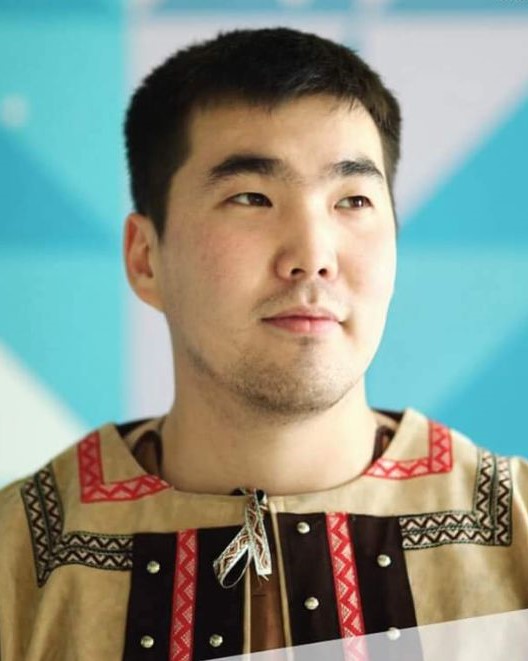
Boris Osipov is a specialist of the Even language, a graduate student at Amur State University (Blagoveshchensk) and a junior researcher in The Arctic Linguistic Ecology Lab, at North-Eastern Federal University (Yakutsk), and a member of the Department of Northern Philology, Institute for Humanities Research and Indigenous Studies of the North, Siberian Division of the Russian Academy of Sciences in Yakutsk, Russian Federation. Osipov specializes in experimental phonology, the Even language, Tungusic languages, the preservation and revitalization of minority languages, and the impact of the environment on language development. Osipov is Even, an Indigenous Tungusic minority group living in northeastern Russia.
Co-facilitator: Language, Culture, and Climate Change in the Arctic
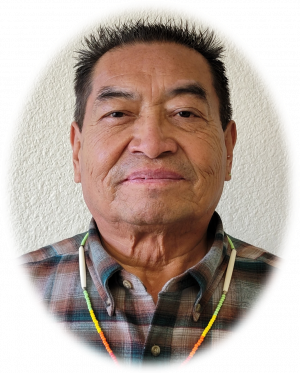
Burt Medicine Bull, Setovaatse, is a member of the So'taa'e band of the Northern Cheyenne people. He is a professor of Cheyenne Language and Culture at Chief Dull Knife College in Lame Deer, MT. Setovaatse has held multiple significant teaching positions from 4th grade through college levels in Montana and South Dakota. His B.A. from Montana State University, Billings, is in elementary education with a Minor in Native American Studies. He received his M.A. in Leadership/Elementary Administration and graduated with honors, Magna Cum Laude from Oglala Lakota College. He is a practicing member of the Native American Church and participates in the sweat lodge. He is a fluent speaker of his native Cheyenne language and is passionate about teaching his language and sharing his culture.
Co-facilitator: Northern Cheyenne Practicum
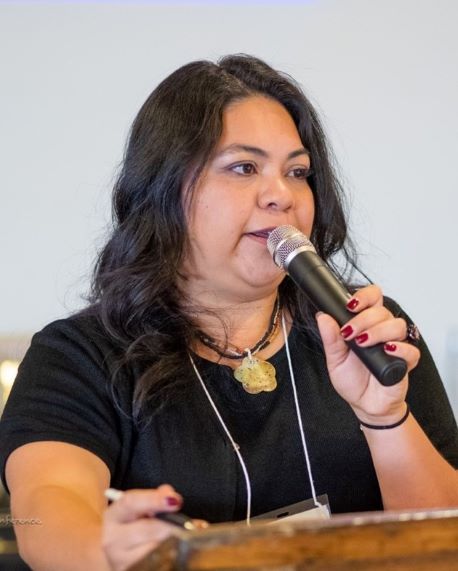
Carly Tex, the Executive Director of the Advocates for Indigenous California Language Survival, is a basketweaver, community linguist, language instructor, community organizer and advocate. Carly has been creating a career in language and culture ever since she began weaving baskets at the age of ten. Carly is a member of North Fork Rancheria Band of Mono Indians on her father’s side and a descendant of Dunlap Band of Mono Indians on her mother’s side. She has been an apprentice through the Alliance for California Traditional Arts Apprenticeship Program and co-founded a youth weavers’ circle through the Living Cultures Program. She presented on California Indian language and cultural revitalization to local area schools, museums, and libraries. She has a bachelor’s degree in Anthropology with emphasis in Linguistic Studies from CSU Sonoma, and a master’s degree in Linguistics from University of Arizona through the Native American Languages Master’s Program (NAMA). Upon graduating, Carly made a point to attend as much language revitalization training as possible to gain teaching methods, resources, and professional connections to assist in sustaining her heritage language, Western Mono. Currently, Carly is the Executive Director for the Advocates for Indigenous California Language Survival (AICLS) and is responsible for the implementation of the Advocates’ programs, vision, and mission to support the revitalization of languages Indigenous to California. In her spare time, Carly facilitates online language courses and YouTube videos, and is developing a website of online Mono resources.
Co-facilitator: Family Language Revitalization & Indigenizing the National Science Foundation

Carlos Flores Quispe is from an expert weaving family in Candelaria, Chuquisaca, Bolivia and speaks Quechua, Spanish and English. He has a bachelor’s degree in English and Quechua from the Universidad San Francisco Xavier in Chuquisaca, with a pre-degree in Sociology, granted by the University of Hradec Králové in the Czech Republic where he also taught a Quechua workshop. He loves singing, dancing, graphic and audiovisual design. For Carlos, keeping the Quechua language and culture alive represents keeping love for PACHAMAMA (mother earth) alive and maintaining the three principal values and morals; AMA SUWA, AMA LLULLA and AMA QHILLA (don't steal, don't lie and don't be lazy). He is interested in contributing to the revitalization of the Quechua language through social media, pedagogical didactic materials and design for experiential learning by both children and adults. He has conducted fieldwork, transcription, translation and glossing with Susan Kalt to archive at the AILLA, as part of Kalt’s YachaySimi project.
Co-facilitator: South Bolivian Quechua: Creating Curriculum Materials from Documentary Interviews & South Bolivian Quechua Practicum
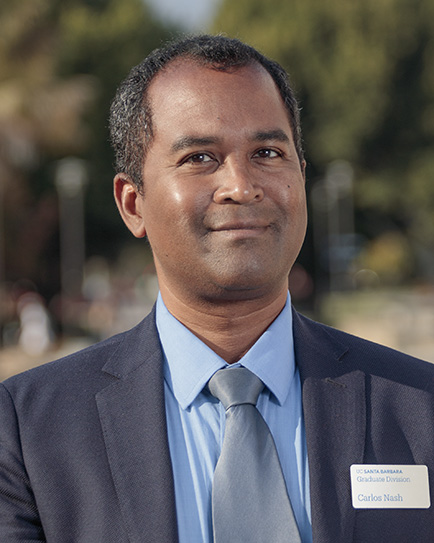
Carlos Nash is the Director of Graduate Diversity Programs for UC Santa Barbara’s Graduate Division. He was a lecturer at Sam Houston State University, assistant professor at the University of Kansas, and lecturer at UC Santa Barbara. Currently, he oversees recruitment and retention programs for graduate students from diverse and non-traditional backgrounds. He is a co-PI for the NSF-AGEP California Hispanic Serving Institute Alliance. As a linguist, he worked on language documentation of Ekegusii, collaborated with Kennedy Bosire and Gladys Machogu on a comprehensive Ekegusii dictionary (made possible by inField/CoLang 2008), and worked with Racquel-María Sapién on the NSF-funded Documenting Endangered Languages Outreach Video Series.
Co-facilitator: Video & Audio Recording Technique
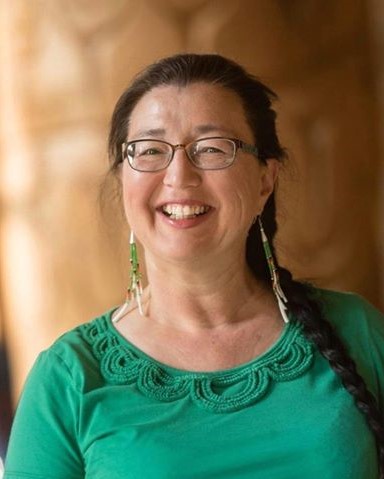
Caroline Running Wolf, née Old Coyote, is an Apsáalooke (Crow) Media Activist dedicated to supporting Indigenous language and cultural vitality. She was raised in USA, Canada, and Germany and considers it a privilege to now live and learn on the traditional, ancestral, and unceded Indigenous territories of the ʷməθkʷəy̓əm (Musqueam), sḵwx̱wú7mesh (Squamish), and sel̓íl̓witulh (Tsleil-Waututh) First Nations while pursuing her PhD at University of British Columbia. Caroline's PhD research explores potential applications of immersive technologies (AR/VR/XR) and artificial intelligence to effectively enhance Indigenous language and culture reclamation. She is also passionate about Indigenous Data Sovereignty and AI ethics.
Co-presenter: Co-presenter: Practical A.I. for Language Maintenance (90 minute session)
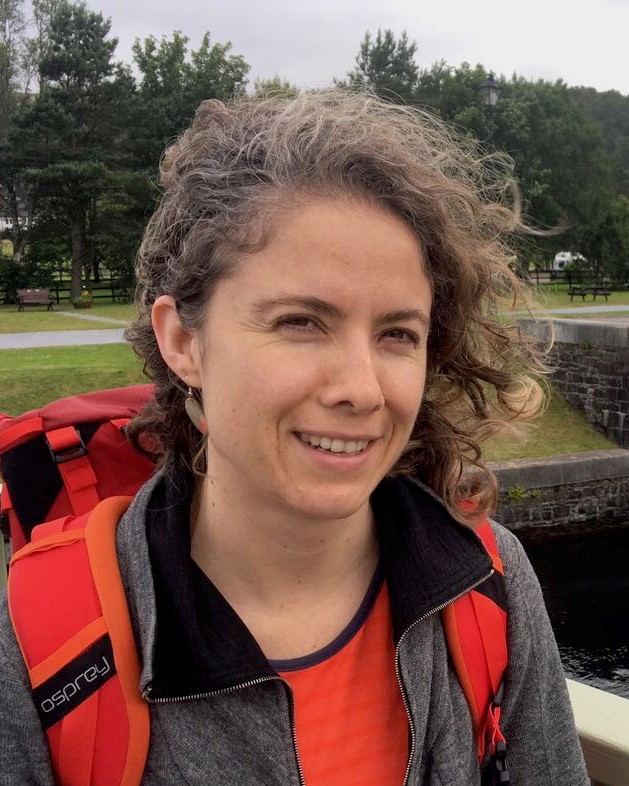
Carolyn O'Meara is currently an associate research professor in the Department of Indigenous Languages at the National Autonomous University of Mexico. She received her PhD in Linguistics from the University at Buffalo, SUNY in 2010. She is especially interested in topics related to language, culture and cognition, specifically as it pertains to the domains of space, landscape, sensory perception and emotions. She combines methods from the areas of language documentation, linguistic anthropology and psycholinguistics to try to better understand to what extent language and culture play roles in shaping cognition. Of particular interest is the landscape domain, which was the focus of her PhD thesis. Since 2004, she has been working together with speakers of Seri or Cmiique Iitom, a language isolate spoken in northwestern Mexico. She has compiled and co-published various texts in Seri together with Seri speakers and has organized small groups dedicated to editing texts in the Seri language to provide material to teachers, readers and writers.
Co-facilitator: Documenting Language of Landscape & Fieldwork Language Explorer (FLEx)
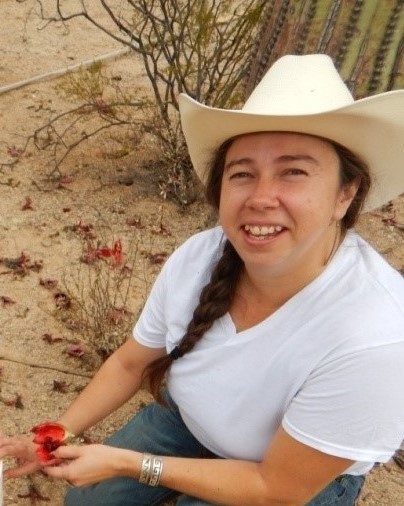
Carrie Calisay Cannon is a member of the Kiowa Tribe of Oklahoma, and also of Oglala Lakota, and German ancestry. She has a B.S. in Wildlife Biology and an M.S. in Resource Management. If you wish to connect with Carrie, you will need a fast horse, by weekday she fills her days as a fulltime Ethnobotanist with the Hualapai Indian Tribe, working towards promoting the persistence of tribal plant knowledge as a living practice and tradition. By weekend she is a lapidary and silversmith artist who enjoys chasing the beautiful as she creates Native southwestern turquoise jewelry.
Co-facilitator: Ethnobotany
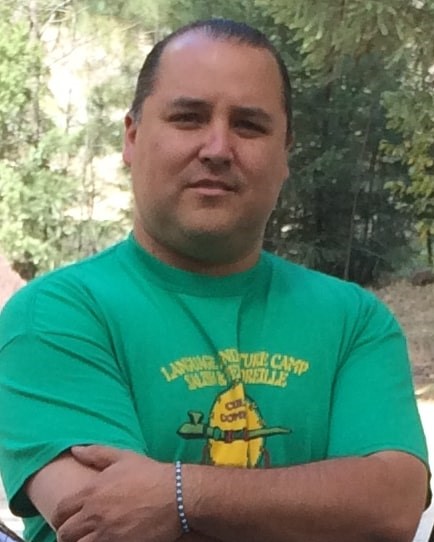
Chaney Bell (Salish & Qlispe) is an enrolled member of the Confederated Salish & Kootenai Tribes. Born and raised on the Flathead Indian Reservation, he graduated from Ronan High School, left to attend college at Haskell Indian Nations University in Kansas, and then returned home to finish his bachelor’s degree in Elementary Education at Salish Kootenai College (2008). It was at SKC that Chaney developed his deep love for the Salish language, and the understanding that the language is the foundation of what it means to be Salish. In 2002, he was one of the founders of the Nk̓ ʷusm Salish Immersion School in Arlee, where he worked for six years. Chaney is a proud husband and father of six children; his wife Echo Brown (Qlispe) is also deeply involved in Salish language work, and is now serving as an instructor at Nk̓ ʷusm. Chaney is now the Salish Language Coordinator for the Séliš-Q ̓lispé Culture Committee, a department of the CSKT government. In that capacity, he continues working hard to revitalize the endangered Salish language, carrying the broad responsibility of nurturing a more unified and strategically planned language effort on the reservation.
Co-presenter: Models talk
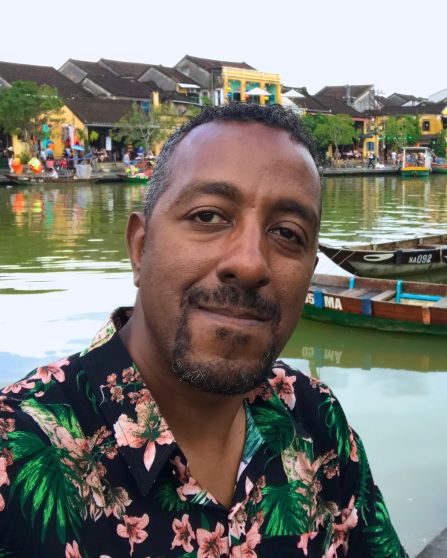
Cláudio da Silva is a doctoral candidate in science of education at Porto University in Portugal and a PhD fellow at the Centre for Research and Intervention in Education (CIIE) of the Faculty of Psychology and Education Sciences at the University of Porto (FPCEUP). A native of Brazil, he has a masters in social education from University of Coimbra, bachelors degrees in biology and in pedagogy, and has led a number of educational projects and environmental education workshops for teachers in Brazil and Papua New Guinea. In his work as a teacher at the Paulo Freire and Hiro Gakuen schools for Brazilian immigrant children in Japan, he developed a technique for interdisciplinary student research projects culminating in student productions of short books or educational videos. His work in Papua New Guinea facilitated the production of the first textbook about indigenous culture for schools in New Ireland Province. His current research focuses on techniques for the inclusion of indigenous and traditional knowledge and terminology in mainstream school curricula, and is being funded by the Fundação para a Ciência e a Tecnologia (FCT), the government agency for supporting science, technology and innovation under the Portuguese Ministry of Science, Technology and Higher Education.
Co-facilitator: Telling Our Own Story
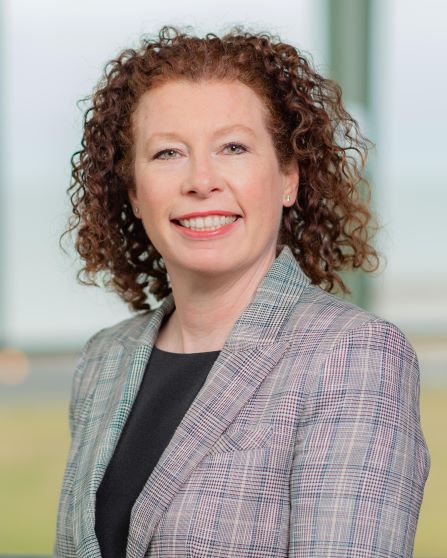
Colleen Fitzgerald, PhD, is the vice president for research and creative activity at North Dakota State University. Previously, Colleen served as associate vice president for research at Texas A&M University – Corpus Christi. Previous to that, Colleen was detailed to the NSF from the University of Texas at Arlington, where she ran a joint funding partnership between NSF and the National Endowment for the Humanities (NEH) called the Documenting Endangered Languages Program. This complex partnership involved stakeholders from multiple NSF directorates, including the Tribal Colleges and Universities Program, Robust Intelligence, and Arctic Social Science, and two NEH divisions. Colleen has also made contributions to two of NSF’s Ten Big Ideas (NSF INCLUDES and Navigating the New Arctic) and has served as the program officer representative for the Directorate’s Communications Team. She has held faculty positions at Texas Tech University, SUNY at Buffalo, San José State University, and the University of Pittsburgh. Colleen was trained as a linguist at the University of Arizona, where she earned her doctorate. Her research focuses on the phonology (a branch of linguistics that deals with systems of sounds within a language or between different languages) of Native American languages and language documentation and revitalization along with the frequent points of intersection between the two. In a larger context, Colleen’s work engages topics such as participatory research methods; service-learning; broadening participation in the social sciences; and science communication.
In 2017, Colleen gave an invited plenary at the Linguistic Society of America (LSA) Annual Meeting that focused on her research into Indigenous language revitalization and the acquisition of pronunciation in Native American communities. Her contributions to linguistics led to her induction in 2021 as a Fellow of the LSA.
Co-facilitator: Indigenizing the National Science Foundation
Co-presenter: Models talk
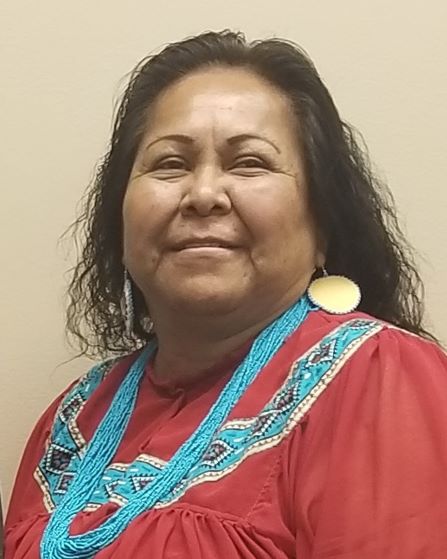
Cordella Moses is a member of the San Carlos Apache Tribe located in eastern Arizona. Cordella works at the tribal language program and is a language instructor at the San Carlos Apache Tribal College. Cordella is a fluent speaker who also contributes language pieces to the local tribal radio. Cordella was a participant in the American Indian Language Development Institute’s Language Vitality Project (NSF BSC #1601738).
Co-facilitator: Survey Methods
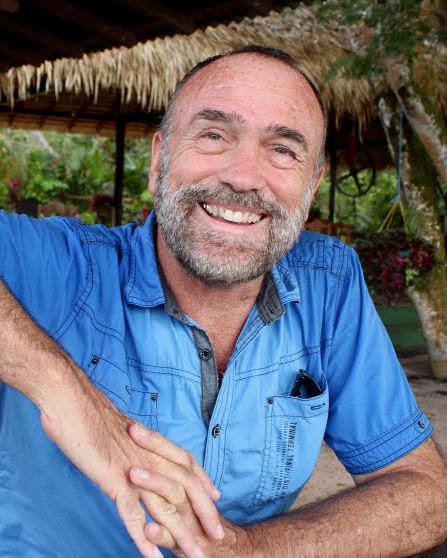
Craig Alan Volker is an Adjunct Professor in the Language and Culture Research Centre of The Cairns Institute of James Cook University in Queensland, Australia. Resident in New Ireland Province, Papua New Guinea, he is a Wangpaang (Assistant Talking Chief) of the Sea Eagle Clan of the Nalik people of New Ireland. A graduate of the University of Montana, he was awarded a PhD in linguistics from the University of Hawaiʻi and was formerly Professor for Linguistic Research at Divine Word University in Papua New Guinea and Professor of Language at Gifu Shōtoku Gakuen University in Japan. He has a particular interest in the use of Papua New Guinean languages for modern purposes, such as formal education, books, films, and comics.
Co-facilitator: Telling Our Own Story
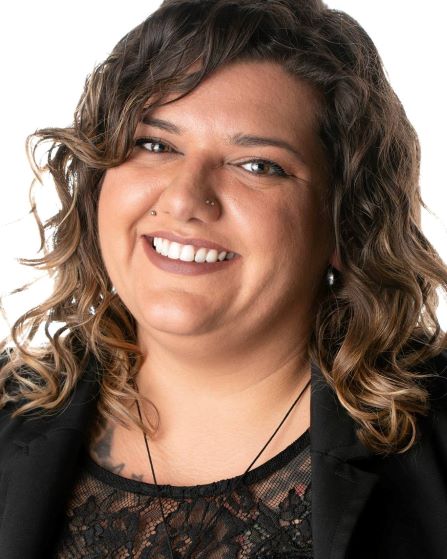
Dannii Yarbrough is an artist and doctoral student in the Linguistics department at the University of Hawai’i at Mānoa. She is actively engaged in community-based material and curriculum design with the Cuts Wood Blackfeet immersion school and Native Teaching Aids, located in northwestern Montana. She also co-produces illustrated language lessons and animations for ʻōlelo Hawaiʻi language reclamation efforts. Her academic interests focus on community collaboration, decolonizing pedagogical approaches, and utilizing linguistic methods in materials development for language reclamation. She has a strong passion for art and believes in the healing and empowerment it brings when utilized in development of reclamation materials, such as graphic storytelling.
Co-facilitator: Animating Traditional Stories as Pedagogical Tools
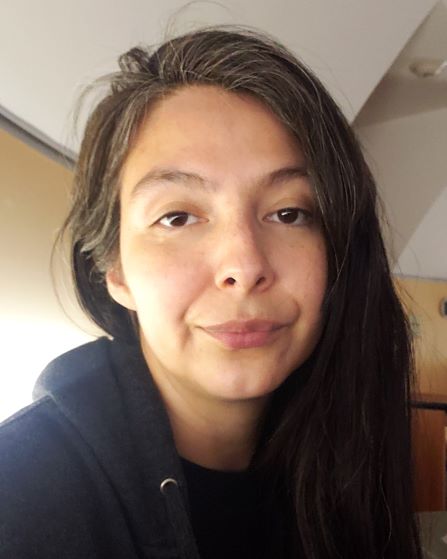
Destini Vaile is a member of the Blackfeet Nation and grew up in Browning, Montana. Her mom first showed her the Seven Brothers and the Bunch Stars when she was seven years old, and she has loved astronomy ever since. She gave her first planetarium presentation on Blackfeet Astronomy in 2014 with the help of Diane Friend and Kevin Kicking Woman.
Presenter: Star Story
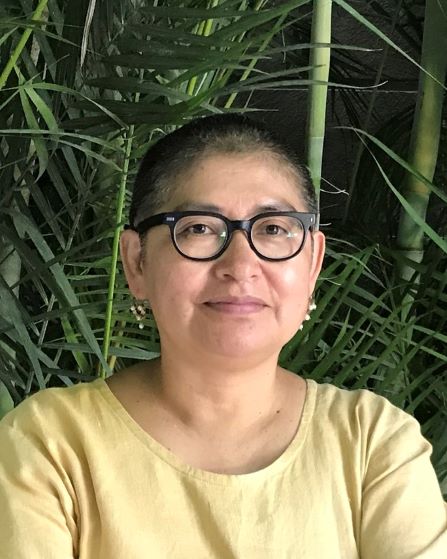
Emiliana Cruz was born in Cieneguilla, San Juan Quiahije, Oaxaca, Mexico. She is a linguistic anthropologist and a Professor-Researcher at CIESAS-CDMX. Her trajectories of research are diverse and interdisciplinary, emphasizing education, linguistic rights, territory, documentation and linguistic revitalization. She has received the Distinguished Community Engagement Award from the University of Massachusetts for her Chatino Language Documentation Project. Cruz’ extensive experience with community collaboration is the mark of her work. She is a founding member of the collective "Dialogues between Indigenous Academics," which does what/ Her more recent publications include “evitemos que nuestro futuro se nos escape de las manos: tomás cruz lorenzo y la nueva generación chatina,” a product of collaboration amongst Chatinos.
Co-Facilitator: Documenting the Language of Landscape & Translating Linguistic Grammar for Language Teaching (Pedagogical Grammar)
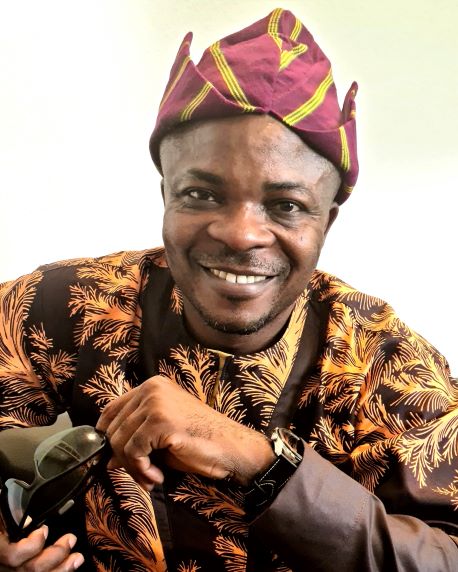
Emma Asonye is a Speech and Hearing Scientist, a Sign Language Linguist; a Postdoctoral Fellow with the University of New Mexico; the Co-Founder and CEO of S-DELI, the organization documenting indigenous Nigerian sign languages. Dr. Asonye is an affiliate member of the World Federation of the Deaf and of Gallaudet University/Nigeria Project. He also runs an educational series on YouTube – Indigenous Hands the Indigenous Voices. His research interest includes sign language documentation, speech-hearing sciences, early language access, and early intervention program for deaf children. Dr. Asonye is the convener of the first conference on indigenous African signed and spoken languages, the Indigenous Hands and Voices of African Identity.
Presenter: Models talk
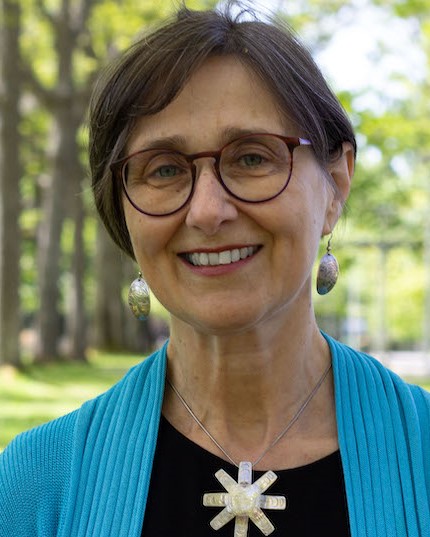
Ewa Czaykowska-Higgins is currently working on two legacy dictionary projects, one with the Nxaʔamxčín Language Program of Colville Tribes and the other with the SENĆOŦEN-speaking community in W̱SÁNEĆ on Vancouver Island. Her community-engaged work has included projects on pronunciation and its role in language learning, on ethical issues in language documentation, on Community-Based Language Research methodology in linguistics, on policies and practices in evaluating community-engaged scholarship, and on language revitalization. Since 2003 she has been active in the development and delivery of Indigenous Language Revitalization undergraduate and graduate programs at the University of Victoria, where she teaches. She taught at CoLang in 2014, 2016 and 2018, and she is on the CoLang Advisory Circle.
Co-facilitator: Blurring the Lines, Dictionary Building, & Teaching: Pronunciation
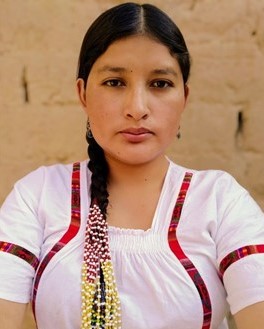
Gaby Vargas Melgarejo is a Quechua and Spanish speaking indigenous woman from Tiquipaya, Bolivia. She is passionate about analyzing her native language and hopes to create materials to meet the demand for Bolivian families to read, write and study it. She is also interested in contributing to linguistic science based on Andean languages and world views. She has an undergraduate degree in Quechua language from the Universidad Mayor de San Simon; her thesis was based on observing and assisting teachers in public elementary schools in Tiquipaya. She holds a master’s degree in Sociolinguistics from the Program in Bilingual Intercultural Education (ProEIB Andes). Her master’s thesis involved three months of participant observation in the Tarabuco region, living with rural families and exploring the effects on the language of widespread migration to towns and cities. She has conducted fieldwork, transcription, translation and glossing with Susan Kalt to archive at the AILLA, as part of Kalt’s YachaySimi project. She is currently pursuing a doctorate in Linguistics at the University of Arizona.
Co-facilitator: South Bolivian Quechua: Creating Curriculum Materials from Documentary Interviews & South Bolivian Quechua Practicum
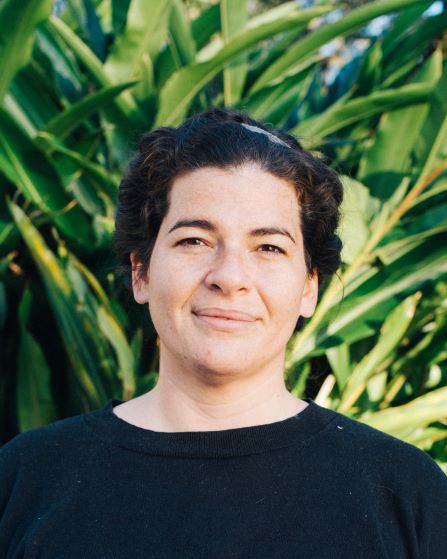
Hali Dardar is the co-founder of the Houma Language Project, and supports process development, community-based service design, and general operations for Language Vitality Initiatives at the Smithsonian Center for Folklife and Cultural Heritage. Prior to the Smithsonian, she led collaborative project management and design with Shift Design Inc., and Louisiana Endowment for the Humanities. She holds a BA in print journalism from Louisiana State University and an MA in Arts, Culture, and Media from the University of Groningen.
Presenter: Designing Collaborations Between Large and Small Partners (90 minute session)
Co-facilitator: Grant Writing
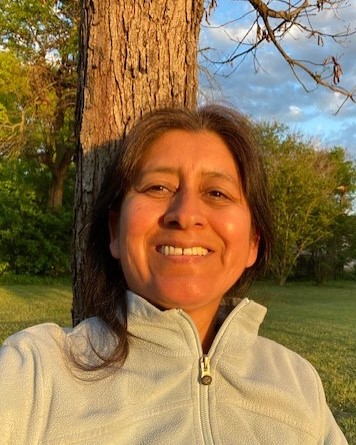
Hilaria Cruz is a linguist and a native speaker of the Chatino language spoken in Oaxaca, Mexico and by members of the Chatino diaspora residing specially in the Southeastern United States including North Carolina, Georgia, and Alabama. She teaches Native American religions and linguistics in the Comparative Humanities department at the University of Louisville. Hilaria has been documenting, promoting, and advancing the study of the Chatino languages and cultures since 2004. She is also passionate about creating media both in print and digital for indigenous audiences. She is currently a board member of the Special Interest Group for Endangered Languages with the Association for Computational Linguistics.
Co-facilitator: Navigating Consent, Rights, and Intellectual Property
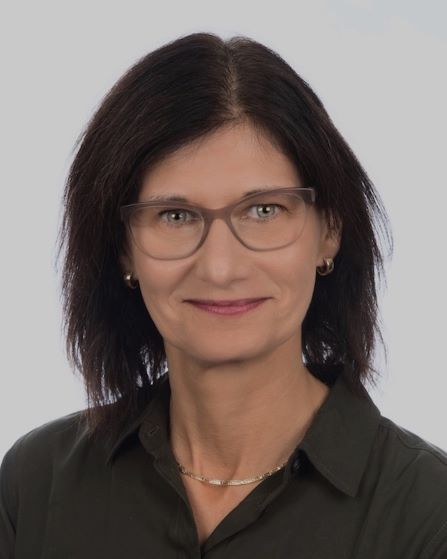
Irene Appelbaum is a Professor in the Linguistics Program at the University of Montana. She began her academic career as a philosopher interested in linguistics as a higher-level science, with a focus on the foundations of speech perception research. For the past several years, her research has focused on Ktunaxa - a severely endangered language isolate spoken in Montana, Idaho, and British Columbia in Canada. Her project has two central goals: contributing to the documentation of Ktunaxa by interlinearizing narratives Franz Boas collected and published as Kutenai Tales (1918); and analyzing these texts for what they can tell us about the relationship between grammar and discourse, both in Ktunaxa and in other languages. She is particularly interested in how our assumptions about the respective domains of grammar and discourse guide, and sometimes misguide, research on language.
Member, Local Organizing Committee
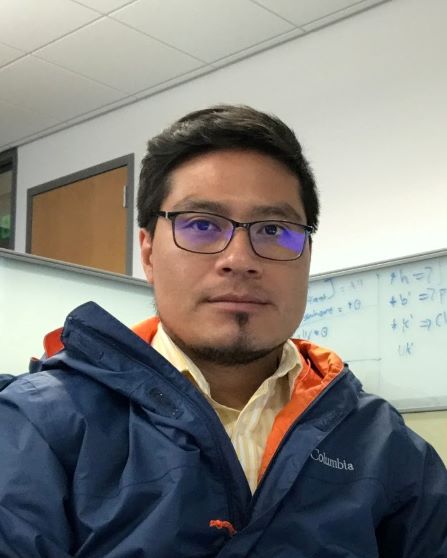
Jaime Perez Gonzalez is a bilingual native speaker Spanish-Tseltal (Mayan) from Tenango, in the Municipality of Ocosingo, Chiapas, Mexico. He earned his Master’s Degree in Lingüística Indoamericana at the Centro de Investigaciones y Estudios Superiores en Antropología Social (CIESAS) in Mexico. His MA thesis entitled Predicados expresivos e ideófonos en tseltal won the 2013 Wigberto Jiménez Moreno Prize, awarded by Mexico’s National Institute of Anthropology and History (INAH) for the best master’s thesis in linguistics. He earned his PhD in August 2021, at the University of Texas at Austin. His dissertation title is The Genius of Mocho’ (Mayan): Morphosyntactic Alignment and its Interaction with Grammatical Aspect and Information Structure, under the supervision of Prof. Nora C. England. He is a Postdoctoral Fellow under the Chancellor's Postdoctoral Fellowship at the University of California Santa Cruz where he will be writing a Descriptive Grammar of Mocho’ (Mayan) under the supervision of professor Ryan Bennett. Jaime has done research on different languages including Spanish, Tseltal (Mayan), Nicaragua Miskitu (Misumalpan language), and Mocho’ (Mayan). Among his interests are language documentation, language revitalization, descriptive linguistics and language contact. He is a former Graduate Research Assistant (2014-2016) at the Archive of the Indigenous Languages of Latin America, and he was the principal investigator of the project Documentation of Mocho' (Mayan): Language Preservation through Community Awareness and Engagement, funded by the Endangered Language Documentation Programme (ELDP) at the University of London 2017-2021.
Co-facilitator: Archiving for the Future & Language Work Outside of Your Own Community
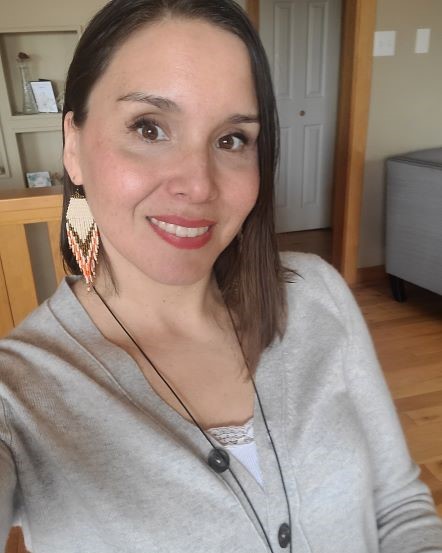
Jasḵwaan Amanda Bedard is a mother, singer, Haida language learner and teacher from G̱aw Tlagée Haida Gwaii. In her third year of Individualized Interdisciplinary PhD program at Simon Fraser University, Jasḵwaan aims to strengthen her Haida Language dialect of X̱aad Kil through unique programming and resource development. She is the Haida Language and Culture Curriculum Implementation Teacher for School District #50, the Team Lead for the X̱aad Kíl Née Haida Language Office, and regular course instructor for the Haida Gwaii Institute as well as Simon Fraser University’s Indigenous Language’s Program. Jasḵwaan’s completion of a three- year Mentor Apprentice Program learning Xaad Kil from the late Primrose Adams is her greatest education
Co-facilitator: Indigenous Approach To Cross-Cultural Communication
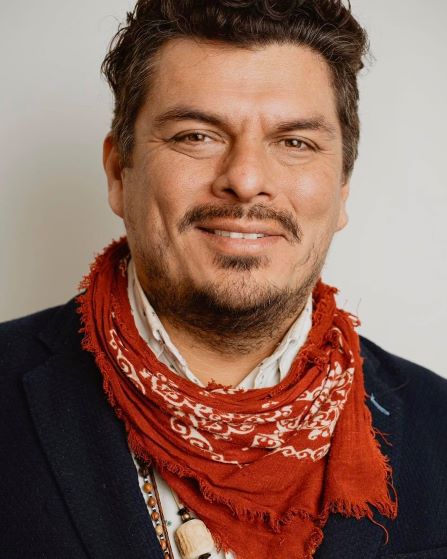
Jean-Luc Pierite, originally from New Orleans, Louisiana, now resides in Boston. Jean-Luc serves as President of the Board of Directors for the North American Indian Center of Boston. Jean-Luc also volunteers with his Tribe's Language and Culture Revitalization Program which is a collaboration with Tulane University in New Orleans. This program is based on tradition passed from Jean-Luc's great-grandfather Joseph Alcide Pierite, Sr., last traditional chief and medicine man of the Tunica-Biloxi. The Tribe is an amalgamation of members from the Central Louisiana communities of: Tunica, Biloxi-Choctaw, Ofo, and Avoyel. Jean-Luc has a B.A. in Humanities with a co-major in Mass Communication and Japanese from Dillard University in New Orleans. He also earned an A.S. in Video Game Design from Full Sail University in Orlando, Florida. Jean-Luc currently is the International Procurement and Logistics Manager for The Fab Foundation. The Fab Foundation was formed in 2009 to facilitate and support the growth of the international fab lab network as well as the development of regional capacity-building organizations.
Co-facilitator: Blurring the Lines & Language Activism
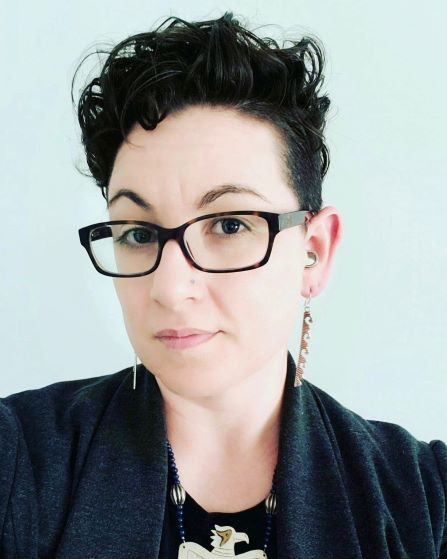
Jenny L. Davis is a citizen of the Chickasaw Nation and an Associate Professor of Anthropology and American Indian Studies at the University of Illinois, Urbana-Champaign where she is the director of the American Indian Studies Program. She earned her PhD in Linguistics at University of Colorado, Boulder in 2013. Her research focuses on Indigenous language revitalization, Indigenous and collaborative research methods, and the repatriation of linguistic and anthropological collections back to Indigenous communities. Her 2018 book, Talking Indian: Identity and Language Revitalization in the Chickasaw Renaissance, focuses on Chickasaw language revitalization efforts and her first full-length collection of poetry, Trickster Academy was published in 2022.
Co-facilitator: Language Activism & Project Planning
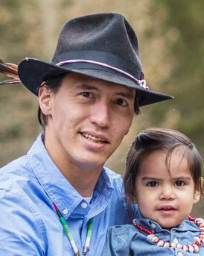
Jesse Asinai’poyi DesRosier is a member of the Blackfeet Nation in Montana. He is a graduate of the Nitsipuwahsin (Cuts Wood School) Blackfeet language immersion and Browning High School. Jesse served in the United States Marine Corps for four years, before earning his BA in Native American Studies from the University of Montana in Missoula. He now teaches at the Cuts Wood School and Blackfeet Community College. Jesse is also an artist, a cage fighter, and a proud husband and father.
Presenter: Models talk
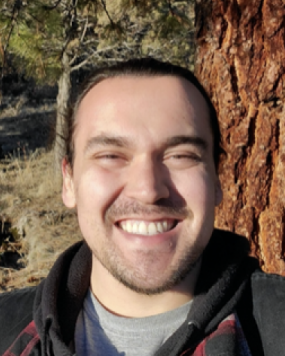
Joseph Dupris is an enrolled member of the Klamath Tribes (Klamath, Modoc, and Yahooskin Paiute) and descendant of the Mnicoujou Lakota from the Cheyenne River Sioux Tribe. He is a Visiting Assistant Professor of Linguistics and Ethnic Studies at the University of Colorado Boulder. Joseph's work on tribal languages focuses on analyzing language, race, and nation in projects that sustain the integrity of indigenous polities. He received his MA in Native American Linguistics and Languages in 2015, and his Ph.D. in Anthropology and Linguistics from the University of Arizona in 2020. Joseph is working with the Klamath Tribes administration to develop community language infrastructures for establishing a language department in anticipation of the UN International Decade of Indigenous Languages.
Presenter: Models talk
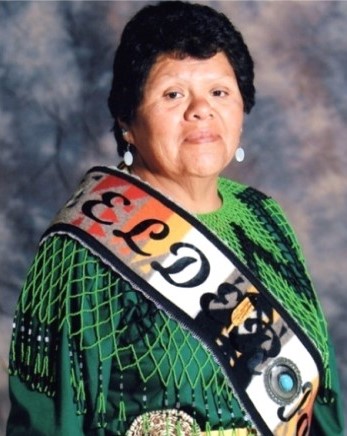
Jorigine Paya is a member of the Hualapai Tribe and has been actively working with the youth, teaching Hualapai traditional arts, crafts, cultural ways, and the tribal language. She also teaches singing and dancing. She has been employed with the Peach Springs Elementary School District on the reservation for 35 years. Jorigine is also a title holder for Elder-Pai and Pai Woman for the Yuman-Pai Group. She currently is employed with the Hualapai Department of Cultural Resources as the language Program Manager administering an ANA language immersion project geared towards head start aged children.
Co-facilitator: Ethnobotany
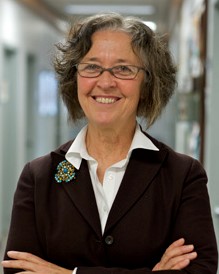
Joyce McDonough is a Professor in the Department of Linguistics at the University of Rochester. She focuses on the study of the phonetic structure of Dene languages, principally Diné (Navajo) with particular focus on understanding speakers’ cues to the structures that facilitate word storage and retrieval, especially important in ’polysynthetic’ languages with complex verbal inflection. McDonough is interested in the phonetics of language contact and shift, and the role of phonetics in documentation and revitalization. She produced the online Dene Speech Atlas, in conjunction with researchers at the University of Alberta, Edmonton. She has been an instructor at the Canadian Indigenous Languages and Literacy Development Institute (CILLDI).
Co-facilitator: Writing Down Speech (Transcription)
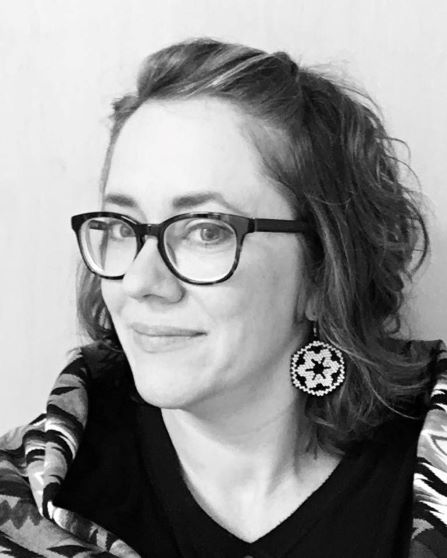
Kate Pewenofkit Briner, DMA, is an insurgent linguist, practical lexicographer, mother, partner, and Indigenous feminist killjoy. she is currently the director of language planning and development for the Comanche Nation and is Kiowa, Comanche, and [Plains/Kiowa] Apache. as a president’s fellow, she has recently completed all coursework for a second PhD in comparative studies (linguistics/cultural rhetorics/Indigenous critical theory) at florida atlantic university focusing on Comanche-centered language reclamation through insurgent research methods (adam gaudry), methodology of visiting (dylan miner), and the Comanche 4 Rs: relationships, reciprocities, redistribution, and resurgence. she was previously the lineberger multicultural scholar in residence at lenoir-rhyne university. beyond language work, kate's research interests include intergenerational trauma and healing in Indigenous communities, sovereignty, Indigenous futurisms, and identity and cultural rhetorics through Indigenous popular music. [capitalization in this bio is intentional.]
Co-facilitator: Curriculum Design & Assessment for Second Language (L2) Class, Teaching Indigenous Languages: Pronunciation, & Writing Systems
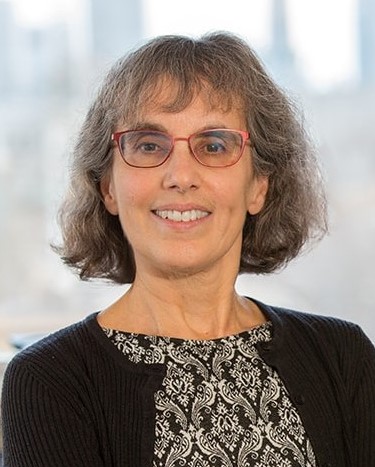
Keren Rice is University Professor at the University of Toronto. She has been involved with research with speakers of Dene languages in the Northwest Territories of Canada since the 1970s and has worked with people in the community of Délı̨nę over the years. She was the first director of Indigenous Studies at the University of Toronto, and has been involved with Indigenous issues at the University of Toronto for many years. She is proud to have been honoured with an eagle feather for her contributions.
Co-facilitator: Writing Systems
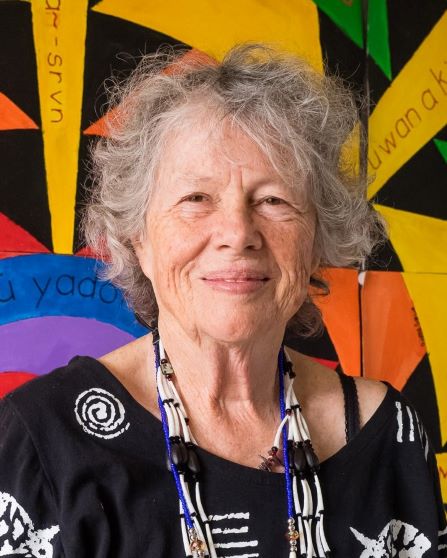
Leanne Hinton is a professor emerita of Linguistics at the University of California at Berkeley and an advisory board member of the Advocates for Indigenous California Language Survival (AICLS). She specializes in indigenous languages of North America, and is an advocate and practicing trainer in the field of language revitalization. With other language activists, she has helped found several organizations devoted to language revitalization, and helped design and implement language revitalization programs including AICLS’ Master-Apprentice Language Learning Program and the Breath of Life Archival Institute for California Languages and its offshoots. Hinton has written or edited numerous books and articles on Native American languages and language revitalization.
Co-facilitator: Family Language Revitalization
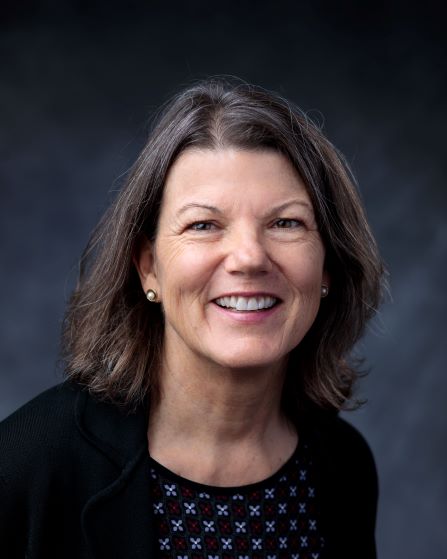
Lenore Grenoble is the John Matthews Manly Distinguished Service Professor in the Department of Linguistics at the University of Chicago and the lead researcher in the The Arctic Linguistic Ecology Lab, at North-Eastern Federal University (Yakutsk). She specializes in the study of Arctic Indigenous languages, with particular expertise in the Tungusic languages Even and Evenki, and in Kalaallisut, an Inuit language spoken in Greenland. Grenoble is interested in language contact, the linguistic and social processes involved in language shift, documentation and revitalization, and a particular emphasis on the interrelationship between language, environment and wellbeing.
Co-facilitator: Language, culture and climate change in the Arctic
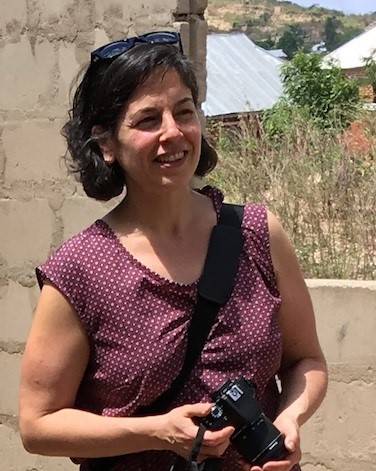
Leora Bar-el is a Professor of Linguistics in the Department of Anthropology at the University of Montana. Her interests include Indigenous languages of North America and Bantu languages of East Africa. Leora has had the honor of working with speakers of Salish languages, Algonquian languages, and East Ruvu Bantu languages spoken in Tanzania. She is interested in dispelling language myths and promoting appreciation of linguistic diversity. Leora is looking forward to welcoming you to Montana for CoLang 2022!
Member, Local Organizing Committee
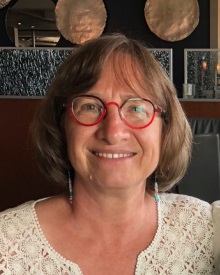
Leslie Saxon was the first person in her family to attend university. She trained in linguistics, researching syntax with Elizabeth Cowper (MA, Toronto) and Sandra Chung (PhD, UCSD) after visiting NWT communities as an RA with Keren Rice in 1977. Her community-based work began in 1987, beginning with Dene language orthography and teaching literacy in teacher education programs. In these and subsequent programs she was mentored by colleagues in the NWT, including Rosa Mantla, and at Memorial University of Newfoundland and University of Victoria. Leslie was co-editor of print, online, and mobile Tłıch̨ ǫ dictionary projects and a Tłıch̨ ǫ literacy manual, funded by SSHRC and the Tłıch̨ ǫ school board. As Linguistics department chairperson Leslie supported the development of UVic’s Certificate (CILR) and Master’s programs in Indigenous Language Revitalization (MILR). Six of Leslie’s NWT colleagues completed Graduate Certificates or Master’s in the MILR program. Leslie was president of SSILA (2007) and the Canadian Linguistic Association (2013-2015). She retired from the University of Victoria in 2020.
Co-facilitator: Math Knowledge in Indigenous Language Worldview
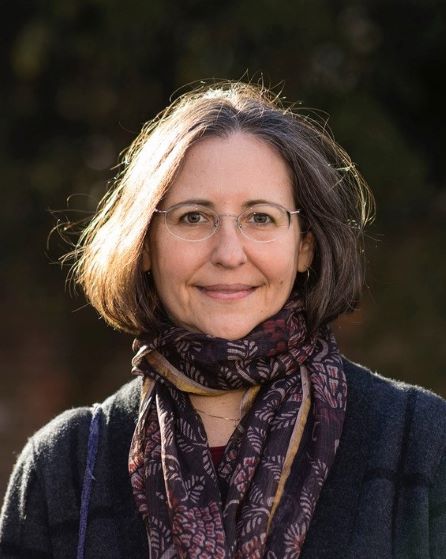
Lise M. Dobrin is an Associate Professor at the University of Virginia. At the center of Lise Dobrin’s life and career are Arapesh people of Papua New Guinea. Her research interests range from analyzing structure and change—including shift—in Arapesh languages, to understanding the legacy of past work on Arapesh language and culture, to working with community stakeholders on new ways to preserve and circulate knowledge of their local history. In her own family life, she has grappled with questions about the transmission of Jewish knowledge and values. She places these questions within the same frame as those she asks about linguistic and cultural continuity in her research.
Presenter: Models talk
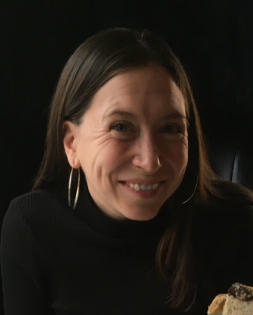
Madeleine Shek is Program Coordinator for CoLang 2022. She also serves as Program Coordinator for the Collaborative Language Planning Project (CLPP), and for a new community-based collaborative language project, MeTILDA. Madeleine also served as Web Developer for the new colanginstitute.org from 2020-2021. Madeleine completed her MA in Linguistics at the University of Montana in 2020. Her desire to pursue a career in language work stems from a passion for working with people.
Coordinator, CoLang 2022 Local Organizing Committee
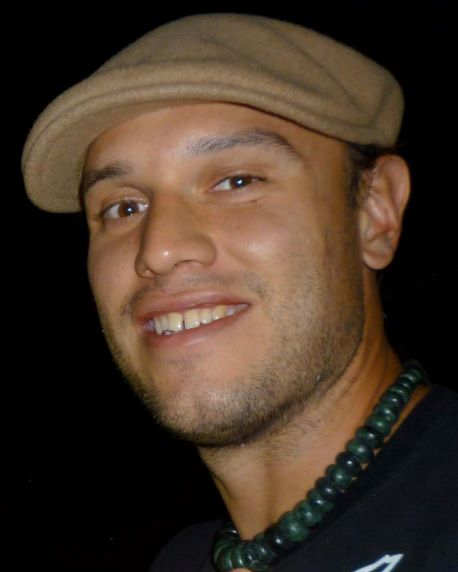
Makha Blu Wakpa an enrolled citizen of the Itazipcho Lakota from The Cheyenne River Sioux Tribe—is a program consultant for non-profit organizations, public schools, and policy groups. In these positions, he advocated, wrote, and managed $2M of grants from the California’s Department of Education and Board of State and Community Corrections serving over 100 youth each year with support from extensive memorandums of understanding. Makha holds a Ph.D. in Education and an M.A. in Native Studies from the University of Arizona, Tucson. Previously, he worked as the Executive Director of the San Francisco Bay Area-organization, Sacred Sites Protection & Rights of Indigenous Tribes. His interests include evidence based programs, culturally-responsive education, and Indigenous language revitalization.
Co-facilitator: Using Our Languages Improves Our Health
Presenter: Models talk
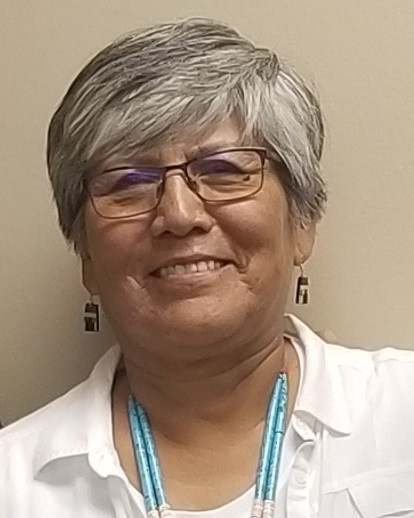
Marilyn Reed is Diné, from the Cameron Chapter of the Navajo Nation, located in northern Arizona. She currently teaches at the tribal college. As a fluent speaker, Marilyn is committed to teaching the language to her family and community members. Marilyn was a participant in the American Indian Language Vitality Project (NSF BSC #1601738).
Co-facilitator: Survey Methods
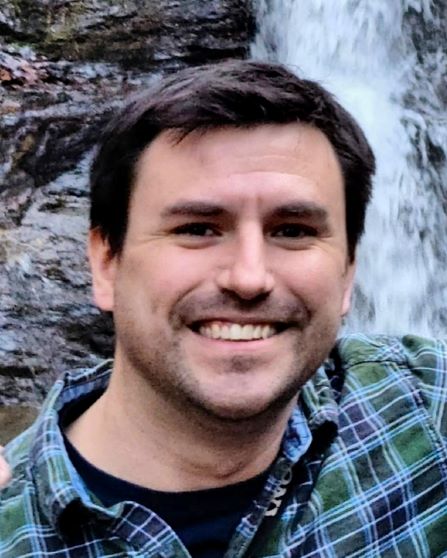
Martin Kohlberger is an assistant professor of linguistics at the University of Saskatchewan, located in Treaty 6 Territory, Canada. He is originally from Quito, Ecuador. He received his MA in Linguistics from the University of Edinburgh in 2010 and his PhD from Leiden University in 2020. Most of his linguistic work has revolved around collaboration with citizens of the Shiwiar Nation in the Amazonian lowlands of eastern Ecuador. Since 2010 and together with over 30 collaborators, he has been involved in the Shiwiar Language Documentation Project, which has the primary aims of documenting the Shiwiar language as well as documenting endangered traditional Shiwiar knowledge, including spiritual speech registers, knowledge of flora and fauna and place names.
Co-facilitator: ELAN for Language Documentation and Research
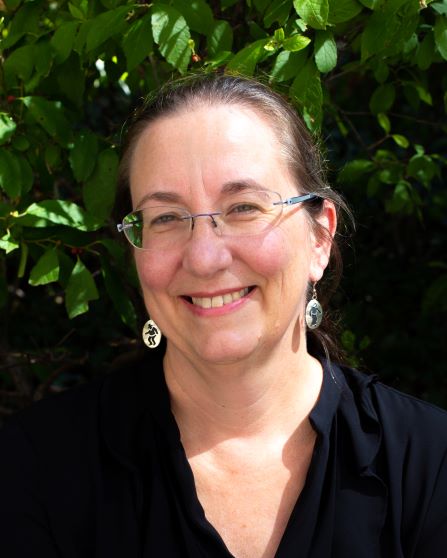
Mary S. Linn is Curator of Language and Cultural Vitality at the Smithsonian Center for Folklife and Cultural Heritage. Her primary research is in effective grassroots strategies in language and cultural sustainability, especially in small language communities. Before coming to the Smithsonian, she initiated the Oklahoma Native American Youth Language Fair, a yearly two-day event that brings in over 2,000 youth who are learning their Native languages, and she was the founding curator of the Native American Languages Collection at the Sam Noble Oklahoma Museum of Natural History. Currently, she is the director of Language Vitality Initiative, a part of CFCH Cultural Sustainability collaborations and research. For thirty years, she has been active in training community members in linguistics, language teaching, and archiving. She was a co-founder and instructor for the Oklahoma Native Languages Association, a co-founder of the Sino-Tibetan Language Research Methodology Workshop, and has been a co-instructor and on the Advisory Circle for CoLang. Linn also serves on the Smithsonian Recovering Voices Mother Tongue Language Film Festival, on the steering committee of the National Breath of Life Archival Institute, and on the advisory board for the Endangered Languages Project.
Partner: Movie Night
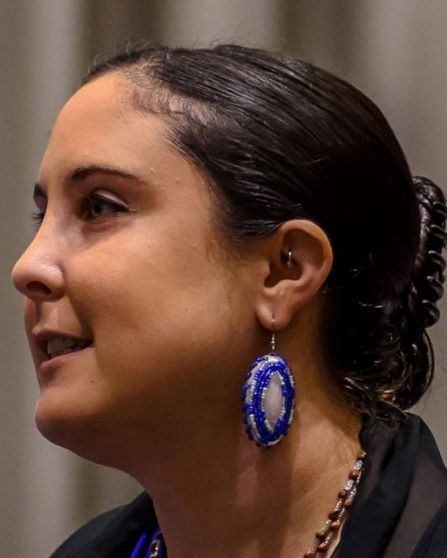
Megan Lukaniec is a member of the Huron-Wendat Nation of Wendake, Québec and an Assistant Professor of Indigenous Language Revitalization in the Indigenous Studies Program at the University of Victoria. Since 2006, she has been working with and for her community to reawaken and reclaim the Wendat language, which was dormant for over 150 years. She continues to work for the Wendat Language Sector (Conseil de la Nation huronne-wendat), where she reconstructs the language from legacy documentation, creates reference materials, and contributes to the development of curricula and pedagogical materials.
Co-facilitator: Language Reclamation & Working with Archival Materials
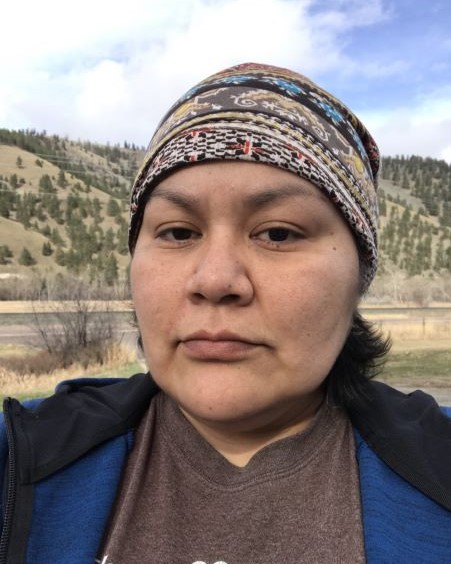
Melanie Sandoval (Salish and Navajo) is currently the Salish language instructor for Salish Kootenai College's Salish Language Educator Development Program. At the age of twelve, Melanie's mother brought her to her first Salish language class and at that time decided to pursue learning and teaching Salish. She graduated from SKC and the University of Montana. She has taught Salish language in many capacities including public school, Nk̓ʷusm Salish Language School, Early Childhood Services, and adult classes. Salish language is her lifelong passion and she will continue to learn and teach as long as possible.
Co-presenter: Models talk
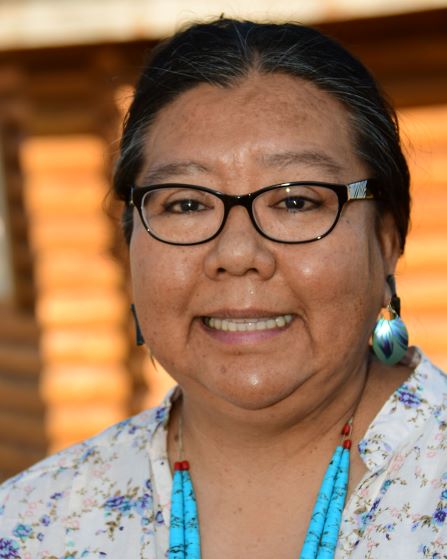
Melvatha R. Chee is Tsé Nahabiłnii, Kin Łichíi’nii, Hooghan Łání and Áshįįhí, originally from Lake Valley, New Mexico. Dr. Chee’s research focuses on the linguistic analysis of Navajo child speech. Through the analysis of child speech, Chee studies how children analyze information that is packaged into a single word and what patterns are recognized at different stages of linguistic development. Chee’s primary research interest investigates the first language acquisition of the Diné verb structure and explores how Diné culture informs her linguistic work. Her secondary research goal focuses on building a Navajo language database consisting of literature, conversations, narratives, and child speech for corpus-based studies. Chee is a United States Marine Corps Veteran and she maintains a connection to her culture to enrich her Navajo language skills, knowledge and well-being. She is Assistant Professor of Linguistics and Director of the Navajo Language Program at the University of New Mexico.
Co-facilitator: Writing Down Speech (Transcription) & First Language (L1) Acquisition of Indigenous Languages for Revitalization
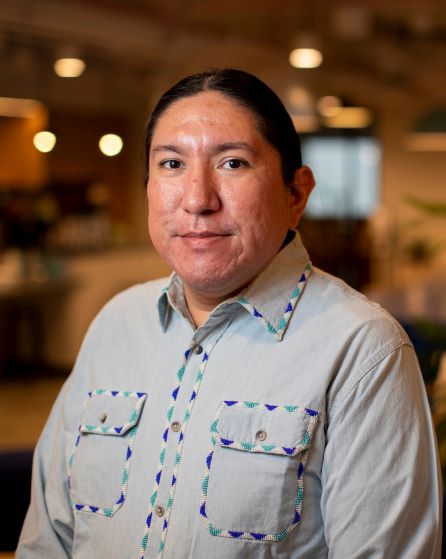
Michael Running Wolf (Northern Cheyenne/Lakota/Blackfeet) was raised in a rural prairie village in Montana with intermittent water and electricity; naturally he has a Master’s of Science in Computer Science, is a former engineer for Amazon’s Alexa, and is now an instructor at Northeastern University. He was raised with a grandmother who only spoke his tribal language, Cheyenne, which like many Indigenous languages is near extinction. Michael is pursuing Indigenous language and culture reclamation using immersive technologies (AR/VR/XR) and artificial intelligence. He is an AI ethicist and is currently building an automatic speech recognition system for Indigenous languages in the Pacific Northwest. [Photo by: Adam Glanzman/Northeastern University]
Co-presenter: Practical A.I. for Language Maintenance (90 minute session)
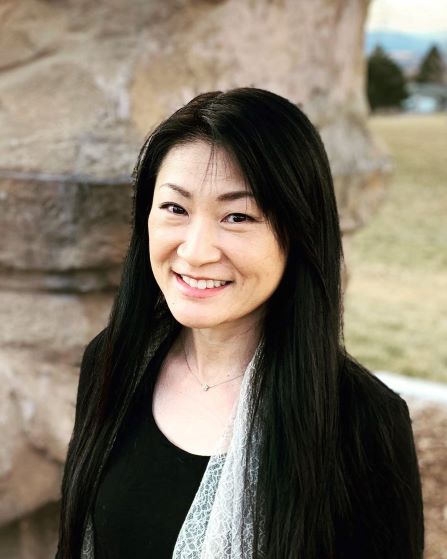
Mizuki Miyashita is a professor of linguistics and director of the Linguistics Program at the University of Montana. She earned her Ph.D. in Linguistics at the University of Arizona; her dissertation was on phonology in Tohono O’odham. The current focus of her research is documentary linguistics in Blackfoot, which began with a collaboration with the late Darrell Kipp at the Piegan Institute in Browning, Montana. She has recorded lullabies and other songs, narratives, conversations, and isolated words in Blackfoot. She is currently engaged in research and outreach funded by the National Science Foundation’s Dynamic Language Infrastructure Program (NSF-DLI). Her research focuses on documentation and application of rhythm and melody in Blackfoot. She is also engaged in Community-Based Research; she established the Collaborative Language Planning Project (CLPP) with six Tribal Colleges in Montana. She attended CoLang 2014, co-presented a plenary talk at CoLang 2016, instructed workshops at CoLang 2018, and is co-director of CoLang 2022.
Co-director, CoLang 2022 Local Organizing Committee
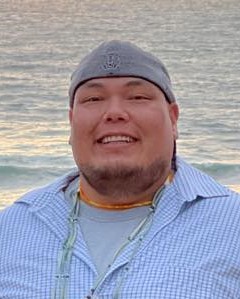
Mosiah Bluecloud, an enrolled member of the Kickapoo tribe of Oklahoma, began working in Indigenous Language Revitalization in 2008. He started as an intern at the Sauk Language Department. He transitioned from an Audio and video technician to a member of the Sauk Language Department’s Modified Master Apprentice Program in 2010. After 1,280 hours of learning Sauk as an Apprentice and 668 hours of professional development training in Native Language Teaching Methodologies, Mosiah Became the Lead instructor of the Sauk Language. He taught community classes across three counties, a Sauk Language course at Bacone College, and two levels of Sauk at Shawnee Highschool. He left the Sauk Language department and got his B.A in Linguistics Spring 2016, from the University of Oklahoma, and established the Kickapoo Language program later that fall. He went back to school at the University of Arizona and completed his Masters in Native American languages and Linguistics in Spring 2020 and is now working through the Linguistics PhD program at the University of Arizona.
Co-facilitator: Video & Audio Recording Technique, Fieldwork Language Explorer (FLEx), & Video Editing Basics
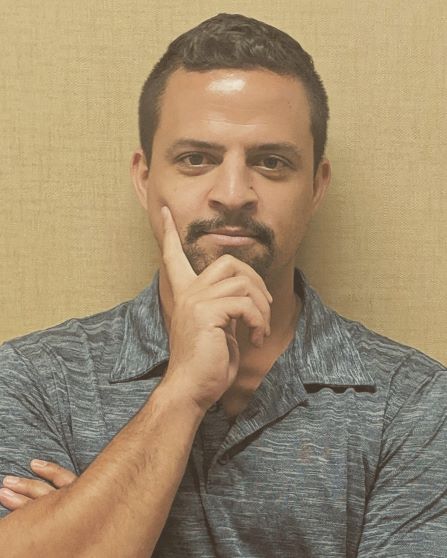
N. Ha'alilio Solomon is an instructor in the Kawaihuelani Center for Hawaiian Language at the University of Hawaiʻi at Mānoa, where he is completing his doctoral degree in Linguistics. He is also a lecturer for Tahitian Language in the Indo-Pacific Languages and Letters Department. Haʻalilio advocates for the reclamation of ʻōlelo Hawaiʻi, the Hawaiian language, through education, outreach, and translation. His dissertation studies focus on linguistic ideologies, pedagogy, and revitalization. His other academic interests are documentation and research in the languages of French-occupied Polynesia. He speaks several other languages, and his multilingualism shapes his pedagogical approach as well as his academic endeavors.
Co-facilitator: Animating Traditional Stories as Pedagogical Tools for Language Reclamation & ELAN for Language Documentation and Research
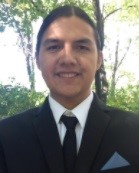
Naatosi Fish is currently the marketing director for Native Teaching Aids, a company dedicated to making teaching resources for indigenous languages. Naatosi has taught a Blackfoot language class at the University of Montana, and attended the Blackfoot Immersion school, Cutswood. Naatosi has a background in Linguistics and works with his collaborator, Dr. Mizuki Miyashita to conduct research on the pitch of Blackfoot, on which they have published a paper together. Naatosi is passionate about teaching and learning his language and uses a mix of linguistics, pedagogical theory, and cultural practices to build activities and materials for his class.
Co-facilitator: Teaching Indigenous Languages: Communicative Language for Second Language Learners
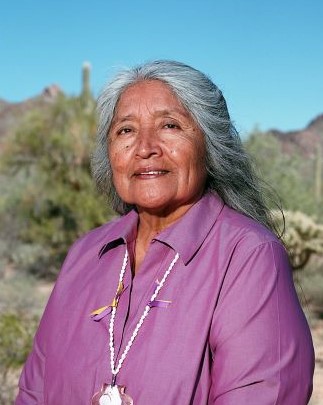
Ofelia Zepeda is Tohono O'odham and Regents Professor of Linguistics at the University of Arizona, and recipient of the MacArthur Fellowship for her nationally and internationally known work in American Indian language education, and recovery. She wrote the first pedagogical grammar on the Tohono O’odham language, A Tohono O’odham Grammar. She is director of the American Indian Language Development Institute (AILDI) a 40-year institute serving the needs of Native American language educators, researchers, and activists. She is currently a member of the International Taskforce for the UNESCO International Decade of Indigenous languages (2022-2032). Ofelia writes in both O’odham and English and has three books of poetry, Ocean Power: Poems from the Desert, Jewed I-hoi/Earth Movements, and Where Clouds are Formed. In 2019 was the poet collaborator on the project, Where Clouds are Formed: A photographic essay, on the U.S. border as it intersects Tohono O’odham lands. In 2021 her work appeared in, When The Light of The World was Subdued, Our Songs Came Through, edited by Joy Harjo, U.S. Poet Laureate.
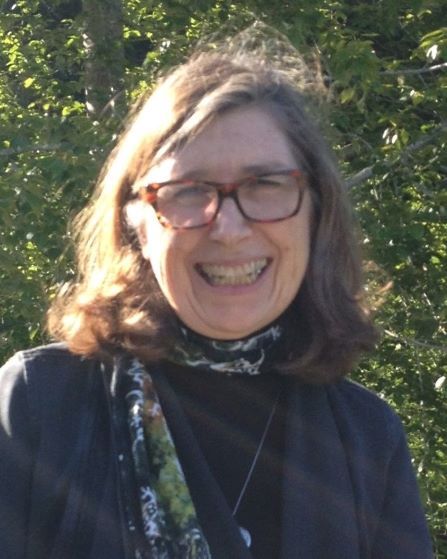
Patricia A. Shaw, Professor Emerita at the University of British Columbia, has taught at CoLang since 2008. She has worked in close collaboration with several Indigenous language communities (Salish, Wakashan, Haida, Athapaskan, Siouan) on documention, on training Indigenous scholars in research and archiving methodologies, and on developing pedagogical materials for language revitalization. She is the Founding Director of the UBC First Nations and Endangered Languages Program, Founding Editor of the UBC Press First Nations Languages Series, and Director of the BC Breath of Life Archival Institute. She has served as President of SSILA, is on the ELF Board of Directors, and has frequently collaborated as a faculty mentor at the California and the National Breath of Life Archival Institutes.
Facilitator: Intro to Linguistics 1 & Intro to Linguistics 2
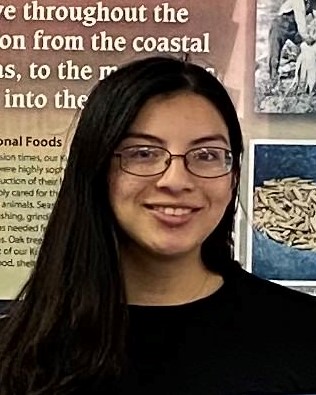
Priscilla Ortiz is Kumeyaay from the Iipay Nation of Santa Ysabel and Payomkawichum from the Rincon Band of Luiseno Indians, both tribes located in Southern California near San Diego. She is currently the apprentice to Stan Rodriguez through the Master-Apprentice Language Learning Program (MAP) and has been molded into the youth advocate she is today through the opportunities given to her by numerous Native Youth organizations like UNITY, the Native Wellness Institute, and the Rincon Youth Storytelling Program. Priscilla strives to see Indigenous people rise and become the healthy communities they deserve to be through youth advocacy and education.
Co-facilitator: Master-Apprentice Program
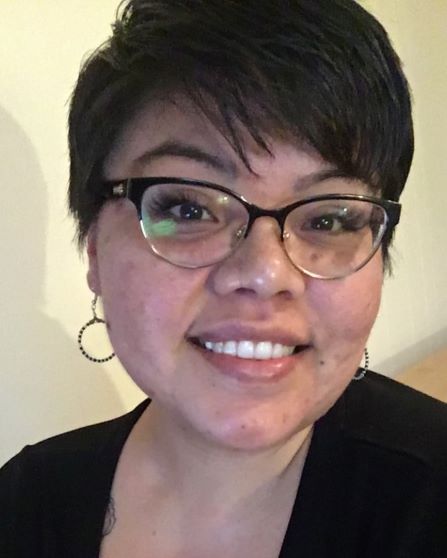
Rae Anne Claxton is from SȾÁUTW̱ (Tsawout First Nation), was born in Quw’utsun (Cowichan on Vancouver Island) and was raised between both of her communities. She is a PhD student studying linguistics at the University of Alberta while also working towards fluency in Hul’q’umi’num’. She and her si’lu (grandmother) are in their third year of First Peoples’ Cultural Council’s Mentor Apprentice Program. Rae Anne has been participating and working in community language revitalization classes, programming and resource development for Hul’q’umi’num’ throughout this time. While a student of the Hul’q’umi’num’ Language Academy from 2018 to 2020, Rae Anne began using Praat to focus on hers and her elders’ speech in order to visualize ways in which she could improve. Hul’q’umi’num’ has a rich set of consonants in comparison to English as well as consonant clusters and glottal stops. Using Praat has helped her recognize and address differences in pronunciation that would be difficult for her to pinpoint and focus on through the use of audio alone. Although Rae Anne was never encouraged to speak Hul’q’umi’num’ as a child, she was exposed to many conversations, natural expressions, self-talk, and she was spoken to in the language—given commands, encouragement, and guidance. Rae Anne is passionate about reclaiming language use in her family and contributing to the accessibility, understanding, and use of technology to support and strengthen language use in community.
Co-facilitator: Praat for Indigenous Language Learning
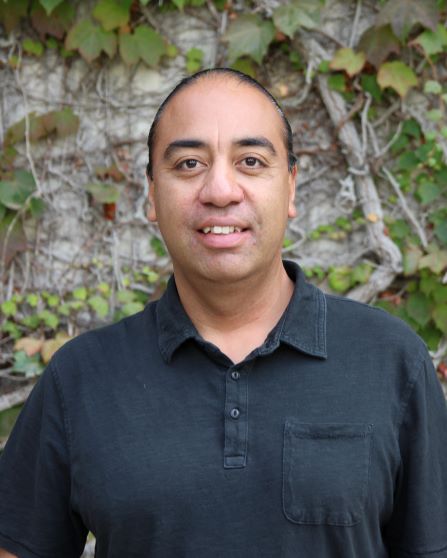
Ray Huaute (Chumash, Cahuilla) is a Ph.D. student in the Linguistics Department at the University of California, San Diego. He also holds an MA in Native American Linguistics (NAMA) from the University of Arizona, and a BA in Native American Studies from University of California, Riverside. His main research interests include, language documentation and description, second-language acquisition, code-switching, Native American sign languages, language revitalization and maintenance, and language reclamation. He was recently awarded a grant from the Endangered Language Documentation Programme (ELDP) for his project entitled “Expanding the Documentation and Description of Cahuilla” to conduct fieldwork on the Desert dialect of Cahuilla, an under-documented Uto-Aztecan language of Southern California. He is also a member of the Natives4Linguistics Special Interest Group (SIG) of the Linguistic Society of America, where he has helped to pilot a new "Mentor Initiative" designed to increase the participation and representation of Indigenous linguists, as well as community language workers and activists in the linguistic sciences. As a former Cahuilla language instructor for the Morongo Band of Mission Indians, he has extensive experience in teaching indigenous languages in a tribal setting, as well as developing language curriculum and assessment tools for K-12 and adult community learners. He also currently teaches a university level course, "Cahuilla Literature and Linguistics," at the University of California Riverside. His classroom teaching experience is centered on the use of various language immersion methods including the 'Where are your keys?' (WAYK) method, Accelerated Second Language Acquisition (ALSA), Total Physical Response (TPR), Total Physical Response Storytelling (TPRS), and other task-based activities that build up a learner’s situational fluency. Ray is an advocate for community-centered linguistics, as well as culture-based language curriculum development.
Co-facilitator: Documenting Conversation
Workshop assistant: Intro to Linguistics 1 & Curriculum Design & Assessment for Second Language (L2) Class
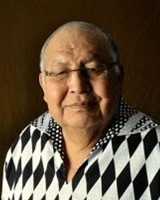
Richard Littlebear, a member and native speaker of Northern Cheyenne, is the president of CDKC. He earned an Ed.D. from Boston University in 1994. He is a Cheyenne language educator and a language activist who promotes bilingualism and advocates for bilingual education on local, state, national and global levels. He has been invited to give talks on language activism and revitalization by a number of institutions, organizations and programs, including UM and AILDI. In his talks, he often includes his belief that learning to read and write one’s native language is the greatest academic achievement. He is one of the leading figures in language revitalization through education and has published a number of articles on these topics.
External member, CoLang 2022 Local Organizing Committee
Facilitator: TPR
Co-facilitator: Northern Cheyenne Practicum
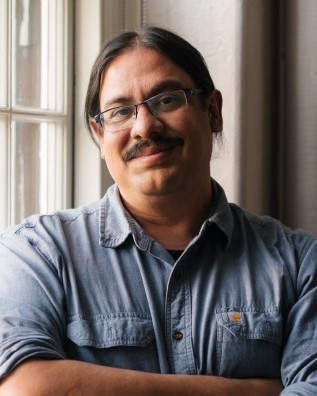
Rolando Coto-Solano (Dartmouth College) teaches computational linguistics and conducts research on natural language processing and speech recognition to accelerate the documentation of Indigenous languages (e.g. Bribri from Costa Rica and Cook Islands Māori).
Co-presenter: Language Documentation with Speech Recognition (90 min session)
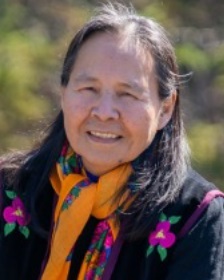
Rosa Mantla contributed to her community as an educator, educational leader, and curriculum coordinator with the Tłıch̨ ǫ school board, retiring in 2020. She completed the University of Victoria Certificate in Indigenous Language Revitalization (2012) and Master’s in Indigenous Language Revitalization (2017), with a project on puberty in Tłıch̨ ǫ worldview. She and her husband raised six children, all of them fluent in the Tłıch̨ ǫ language, and she has cared for many grandchildren and great-grandchildren. Rosa was a leading contributor to the K-10 NWT curricula based on Dene worldviews (Dene Kede). She has been a participant and researcher in numerous science-based research projects, including the NWT Science Camp, and Tłıch̨ ǫ projects on mapping, trails, caribou, tanning, canoe construction, parenting, breast-feeding, and others. In recognition of her work, Rosa is a recipient of the Aboriginal Sport Circle Award (2012) and was inducted into the NWT Education Hall of Fame (2018). She has taught courses with Aurora College and University of Victoria in teacher education and language revitalization programs.
Co-facilitator: Math Knowledge in Indigenous Language Worldview
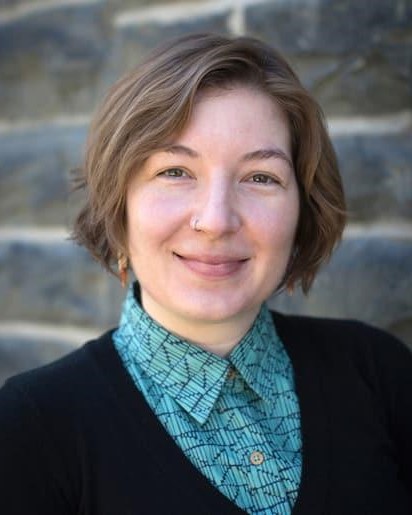
Sarah Murray is an Associate Professor in the Department of Linguistics at Cornell University, as well as affiliated faculty in American Indian and Indigenous Studies, Cognitive Science, and Philosophy. Her research combines cross-linguistic semantics and pragmatics with community-based language work. Since 2006, she has been working with Chief Dull Knife College and the Northern Cheyenne community in Montana on a variety of language projects.
Co-facilitator: Northern Cheyenne Practicum
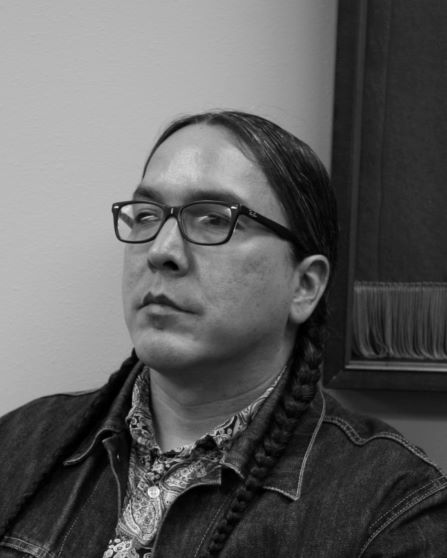
Sean Chandler, an enrolled member of the Aaniinen (Gros Ventre Nation), is the President of Aaniiih Nakoda College (ANC) located on the Fort Belknap Indian Reservation in north-central Montana. He is also the Director of the White Clay Immersion School (WCIS) at ANC. In 2016, Sean was appointed to the Montana Arts Council. Additionally, in April of 2018, Sean received the Montana Indian Education Association’s Indian Educator of the Year Award. For the past 18 years Sean has been employed with ANC, serving mostly as an Instructor and Director of American Indian Studies, until 2017 when he began to fill the role of Academic Dean and later as President in 2020. In addition to his administration duties, he also instructs the Aaniiih (Gros Ventre) Language to grade school aged children within the WCIS. Sean acquired a Bachelor of Arts in Art in 1997, as well as a Master of Arts in Native American Studies in 2003 from Montana State University-Bozeman. In 2014, he attained a Doctor of Education in Educational Leadership from The University of Montana with his dissertation entitled, “The Identity of Indigenous Lifeways.”
Presenter: Models talk
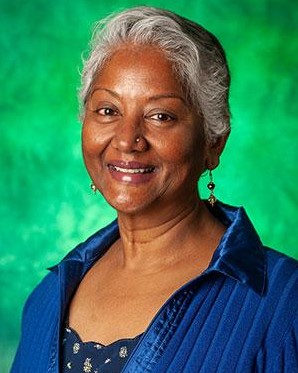
Shobhana Chelliah is Professor of Linguistics at the University of North Texas. Her research focuses on the documentation of the Tibeto-Burman languages of Northeast India. She is currently partnering with national and academic institutions in India to grow the Computational Resource for South Asian Language (CoRSAL), a language archive for South Asian languages. Her publications include A Grammar of Meithei (Mouton 1997) and The Handbook of Descriptive Linguistic Fieldwork (Springer 2011), and Why Language Documentation Matters (Springer 2021). The CoRSAL team is working with community members to increase use of CoRSAL collections through social media and for pedagogical uses.
Co-facilitator: Grant Writing & Translating Linguistic Grammar for Language Teaching (Pedagogical Grammar)
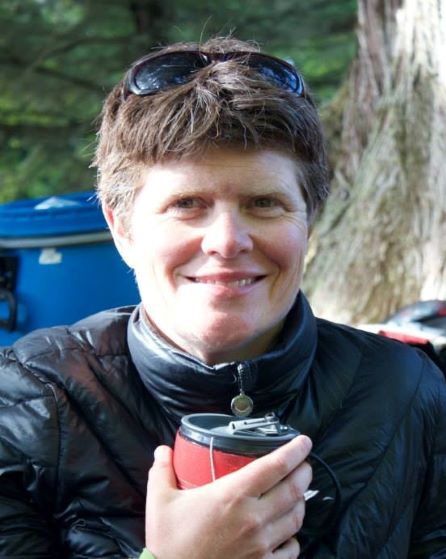
Sonya Bird is an Associate Professor in Linguistics at the University of Victoria, in Victoria BC Canada. She has been documenting the details of pronunciation in Coast Salish languages since 2002, and has also worked on pronunciation with speakers of Dene languages, especially Dakelh (Carrier). She is particularly interested in the role of pronunciation in Indigenous language revitalization. Her current work is focused on supporting adult Hul’q’umi’num’ learners to speak proficiently and fluently. In collaboration with the Hul’q’umi’num’ Language and Culture Society (HLCS) and the Hul’q’umi’num’ Language Academy (HLA), she has been documenting the details of pronunciation across Hul’q’umi’num’ speakers of different generations and fluency levels, to understand what the challenges are for learners and to help design pedagogical tools and methods to overcome these challenges. On the pedagogical side, Sonya is particularly interested in exploring the benefits of incorporating phonetic analysis and “speech visualization” into pronunciation learning and teaching. She and Rae Anne Claxton (co-facilitator of the Praat workshop) have worked on this together, and she is excited to share their experiences with CoLang partipants! At UVic, Sonya has also been involved in designing and delivering the Masters in Indigenous Language Revitalization (MILR), offered jointly by the departments of Linguistics and Indigenous Education.
Co-facilitator: Praat for Indigenous Language Learning
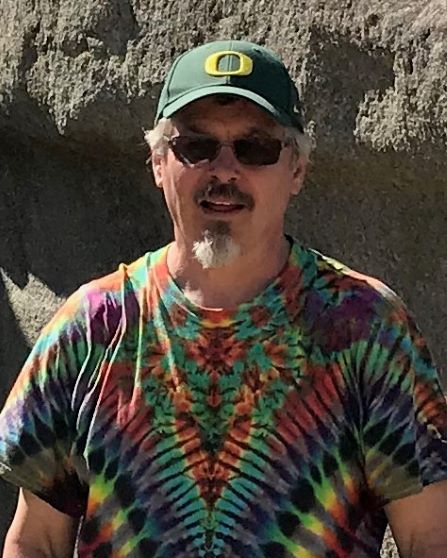
Spike Gildea is Professor of Linguistics at the University of Oregon. He was a Peace Corps Volunteer teaching English in Nepal (1983-85), then in 1988 began descriptive linguistics work in South America, where, supported by multiple NSF grants, he has collected primary data working with speakers of 15 Cariban languages spoken in Venezuela, Brazil, and Guyana. His primary publications are in historical syntax, comparative Cariban studies, and typology. He has taught at all six previous InField/CoLang summer institutes, serving as Director of InField 2010 (which was held at the University of Oregon). He is currently collaborating with the Katxuyana and Kahyana bilingual schoolteachers and the NGO Iepé (Institute de Pesquisa e Formação Indigena) in Brazil to develop literacy and language education materials in and for the Werikyana language.
Co-facilitator: Language Work Outside of Your Own Community
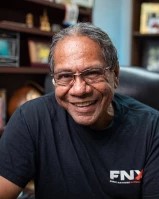
Stanley Ralph Rodriguez is from the Santa Ysabel Band of the Iipay Nation, and a Tribal Councilman for the Nation. He is the Director of Kumeyaay Community College, which offers an accredited Associates Arts program in California. He is a member of the Advocates for Indigenous California Language Survival, and he also serves as California Indian Heritage Commissioner. He is a U.S. Navy Desert Storm Veteran. Dr. Rodriguez teaches at Kumeyaay Community College, Cuyamaca Community College, and is adjunct faculty at California State University San Marcos. Dedicated to educating indigenous communities about Kumeyaay history, culture, and language revitalization, Dr. Rodriguez is a mentor to Native students of all ages and is an advocate for cultural preservation.
Co-facilitator: Master-Apprentice Program
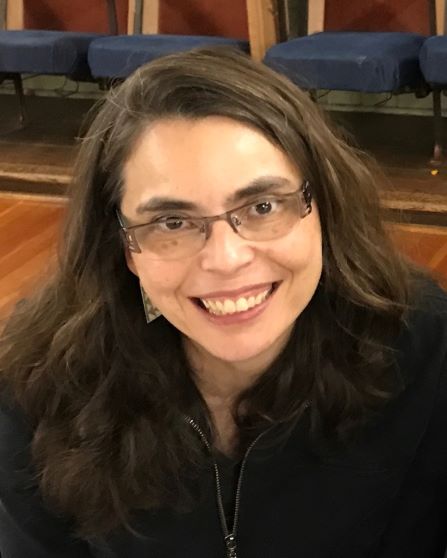
Susan Gehr, Karuk, is a reference librarian at College of the Redwoods, and a member of CoLang’s Advisory Circle. As a young adult, Susan started learning to speak Karuk through community classes and as an apprentice in the Advocates for Indigenous California Language Survival’s Master-Apprentice Language Learning Program. Susan earned an MA in linguistics at the University of Oregon, going on to work on Karuk language documentation and co-publishing the Karuk Dictionary with linguist William Bright. In the course of her work creating and collecting Karuk language materials for the tribe’s Karuk Language Program, Susan wrote a thesis, an oral history of AICLS’ Breath of Life Archival Institute for Indigenous California Languages, for her MLIS through San José State University. She is interested in seeing language community activists take care of their personal language collections with preservation and appropriate access in mind.
Co-facilitator: Dictionary Building
Co-presenter: Community Archives (90 minute session)
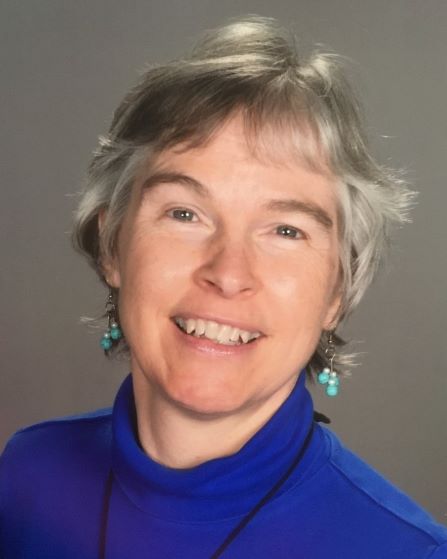
Susan Kalt is a linguist and language educator who continues to learn a great deal from relationships with indigenous educators and community members in rural Chuquisaca, Bolivia and Cuzco, Peru while working to document and promote the Quechua and Spanish languages as spoken there. She has archived nearly 200 interviews at the Archive of the Indigenous Languages of Latin America and continues to explore ways to celebrate and promote Quechua where it is spoken. She has presented on linguistics, documentation and Quechua language curriculum development to language educators, graduate and undergraduate students at universities around the US, Bolivia and Peru. She holds an MA in Education from University of Massachusetts, Boston and PhD. In Linguistics from the University of Southern California and is Professor of Spanish at Roxbury Community College in Boston, Massachusetts.
Co-facilitator: South Bolivian Quechua: Creating Curriculum Materials from Documentary Interviews & South Bolivian Quechua Practicum
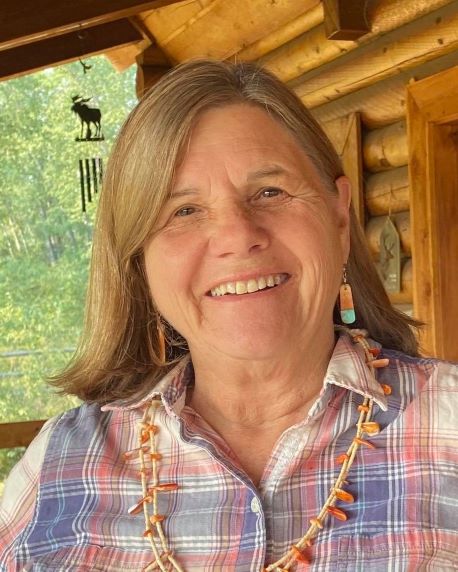
Susan Penfield is retired from the University of Arizona (UofA) and is currently a faculty affiliate at UM. She received a Ph.D. in Linguistic Anthropology from the University of Arizona in 1980. She has many years of research experience working with indigenous languages and extensive involvement in the field of language documentation and revitalization. Among her activities, she has been an instructor at American Indian Language Development Institute (AILDI) and the Canadian Indigenous Languages and Literacy Development Institute (CILLDI), program director of the NSF Documenting Endangered Language (DEL) program, a panelist at SOAS, and a board member for several organizations, including the Alliance for Linguistic Diversity, the Resource Network for Linguistic Diversity, and the Rosamond and Edward Spicer Foundation. She was awarded a Smithsonian Fellowship for Native American Programs in 2012. She taught at CoLang 2008, 2010, and 2014. She is the co-director of CoLang 2022.
Co-director, CoLang 2022 Local Organizing Committee
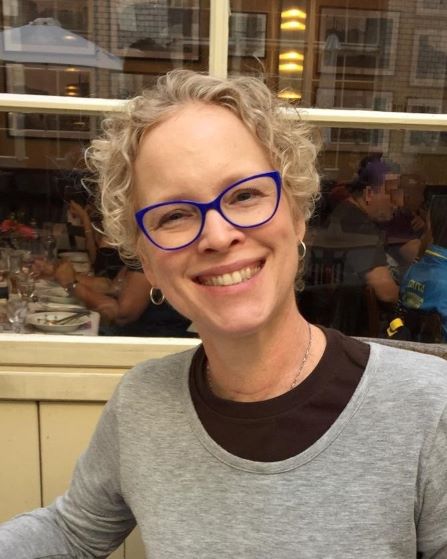
Susan Smythe Kung, PhD, is the manager of the Archive of the Indigenous Languages of Latin America (AILLA), as well as a documentary linguist specializing in languages and cultures of the Americas. As co-PI on various NSF and NEH grants, Kung is internationally engaged in the formulation of best practices for organizing, archiving, sharing, and citing language documentation data. She actively involved in the Digital Endangered Languages and Musics Archives Network (delaman.org), and she has co-facilitated various workshops at CoLang since 2014. The data and analyses from her own language documentation work on Huehuetla Tepehua, an indigenous language of Mexico, are archived at AILLA. Also visit Susan's website.
Co-facilitator: Archiving for the Future & Navigating Consent, Rights, and Intellectual Property
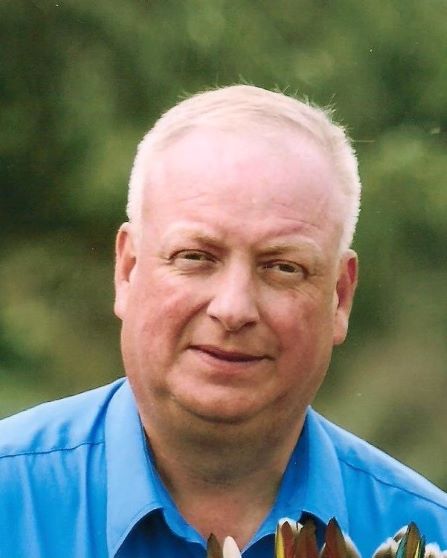
Tim McCleary received his Ph.D. in anthropology at the University of Illinois: Urbana-Champaign, and is a professor at Little Big Horn College, the Crow tribal college. McCleary has always had an interest in how different cultures look at the world. This interest lead him to the field of anthropology. Through his studies he has examined various aspects of the historic and contemporary culture of the Apsáalooke or Crow Indians of Montana.
Presenter: Models talk
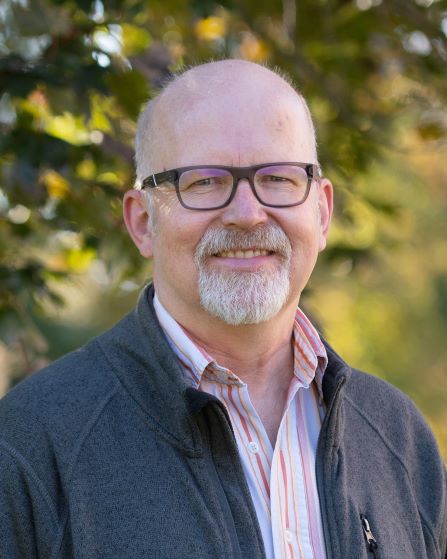
Tim Thornes received a Ph.D. in linguistics from the University of Oregon in 2003, having written a grammar of Northern Paiute as my dissertation. He has been working with fluent first language speakers since 1994, including speakers from seven different communities, to actively document the Northern Paiute language. He teaches linguistics at Boise State University and continues to be involved in community-focused projects to support efforts to preserve and pass on the language. Currently, he is facilitating teacher training and developing workshops for the Shoshone-Paiute Tribes of Duck Valley.
Co-facilitator: Working with Archival Materials
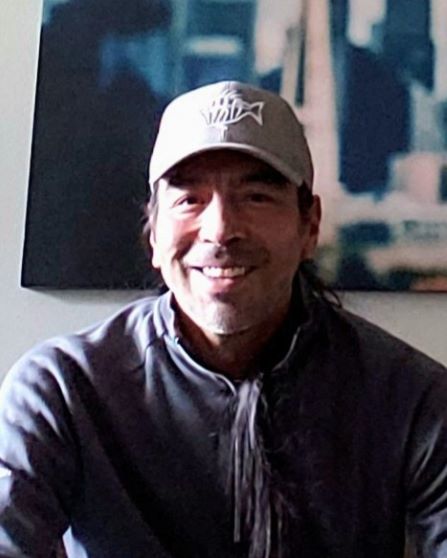
"Tommy Gee" Gamble is from Sitka, Alaska, and is a traditional Tlingit harvester and language educator
whose knowledge and experiences are from the lands and seas of Southeast Alaska. Tommy has served as a substitute teacher in Mt. Edgecumbe High School for the last several years working with students representing more than 100 villages across Alaska. In an even more important role on campus, Tom has been responsible for personally increasing the interest and enrollment numbers in the Yup’ik Language class. He has done this with his enthusiasm for teaching and learning all things Native culture. He encourages students to take pride in their heritage and to participate fully in every experience and skill building opportunity available. Tommy's lifetime achievement award is being his mother Anita's caretaker during her final walk with dementia.
Co-Facilitator: Indigenous Approach To Cross-Cultural Communication
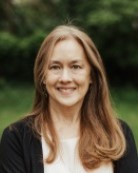
Tracy Hirata-Edds, Ph.D. Child Language, is a Multi-Term Lecturer at the University of Kansas’ Applied English Center. She was a Peace Corps Volunteer and Fulbright Scholar in Nepal. Tracy partners with Native communities to enhance opportunities for culture/language maintenance and revitalization, curriculum and assessment design, teacher training, lesson and materials development, and children’s first and second language acquisition. She worked as a consultant to Cherokee Nation’s Language Revitalization Program and currently consults with the Miami Tribe's language revitalization effort through the Myaamia Center at Miami University. Additionally, she supports revitalization efforts through workshops, research, and teacher training in various contexts, including with Oklahoma Breath of Life and CoLang.
Co-facilitator: First Language (L1) Acquisition of Indigenous Languages for Revitalization, Curriculum Design & Assessment for Second Language (L2) Class, & Teaching Indigenous languages: Communicative Language for Second Language Learners
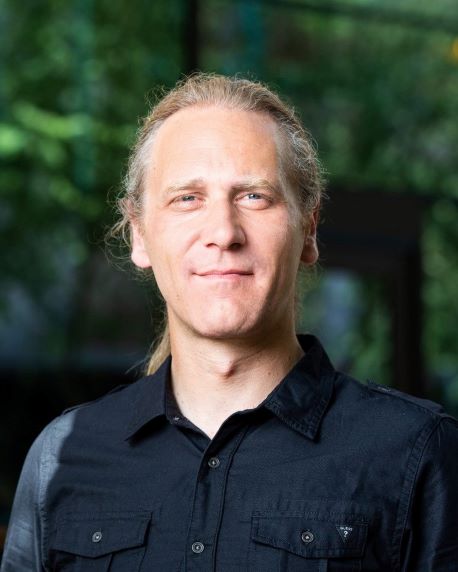
Tyler Peterson received his PhD from the University of British Columbia in 2010 and joined Arizona State University in 2018, with previous positions at the University of Arizona and the University of Auckland. He has worked in Polynesia, Brazil, and with various tribal groups in the American Southwest, training community language activists in language documentation, traditional ecological knowledge, orthography, and policy. He has undertaken extensive fieldwork on the endangered indigenous language Gitksan (Tsimshianic, British Columbia). His primary interests are in the study of semantics and pragmatics, and the development of field methodologies that probe these kinds of meanings.
Co-facilitator: Survey Methods
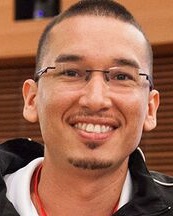
Vernon Grant holds an interdisciplinary PhD in Exercise Science and Community Health from the University of Montana. Dr. Grant was born and raised in Browning, MT and is an enrolled member of the Blackfeet Nation (Amp-ska-pi-pikuni). His dissertation research employed a mixed-method community-based participatory research approach to identify, design, and implement community identified strategies to increase physical activity in 3rd, 4th, 5th, and 6th grade elementary school children on an American Indian Reservation in Montana.
Dr. Grant is an Assistant Research Professor in the Center for American Indian and Rural Health Equity at Montana State University. His current funding is a K01 from the NIH titled, “Developing, implementing, and evaluating a mixed-methods community-based participatory research sleep intervention in families with K-1st grade children living on the Blackfeet Indian Reservation.”
This work began fall 2021 and included Blackfeet families with K-1st grade children and Blackfoot elders. Focus groups were done with Blackfeet families to learn about the sleep environment, sleep problems, and sleep behaviors. Interviews were done with Blackfoot elders to learn about language, story, and traditional beliefs about sleep. This data will be used as content in a sleep intervention to increase sleep in Blackfeet families
Guest speaker: Using Our Languages Improves Our Health
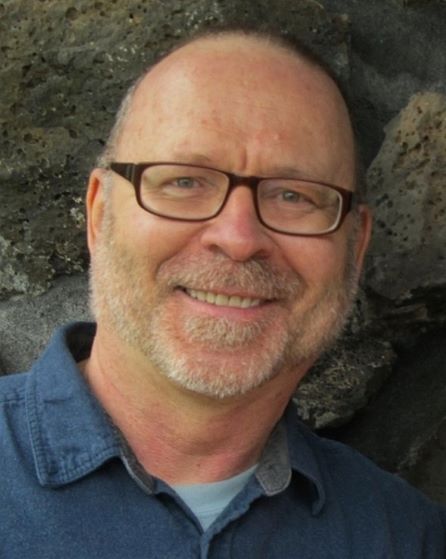
Wayne Leman is a linguist affiliated with Summer Institute of Linguistics (SIL International) and with Chief Dull Knife College. He has been working with the Northern Cheyenne community since 1975 as the linguist for the community. He has published a reference grammar and dictionary, which are actively used by the community members and linguists. He has also been offering the Cheyenne language classes online to the members of the Northern Cheyenne community. His recent approach to his work is decidedly community-centered.
Co-facilitator: Northern Cheyenne Practicum
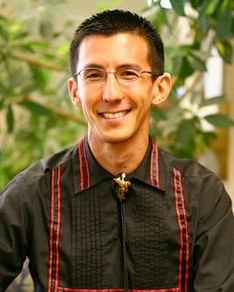
Wesley Y. Leonard received his Ph.D. in Linguistics at the University of California, Berkeley, and is currently an associate professor of Ethnic Studies at the University of California, Riverside. His primary research examines and theorizes sociopolitical factors that are intertwined with Native American language endangerment, documentation, and reclamation. A citizen of the Miami Tribe of Oklahoma, he focuses in particular on the reclamation of his tribal nation’s language, M’yaamia (Miami), and on building capacity for Native American languages in ways that support tribal sovereignty and survivance. A collaborative project that he co-chairs, Natives4Linguistics, promotes Indigenous needs and intellectual tools as ways of doing linguistic science. His work has appeared in scholarly outlets including the American Indian Culture and Research Journal, Gender and Language, Language Documentation & Conservation, and Language Documentation and Description.
Co-facilitator: Language Reclamation
Presenter: Plenary
